
One of the world’s leading publishers of printed classical and educational music.

English Church Music vol2: Canticles & Responses
- Text
- Responses
- Canticles
- Nunc
- Church
- Choral
- Wwwoupcom
- Magnificat
CONTENTS 1. Blair
CONTENTS 1. Blair Magnificat in B minor 2 1a. Nunc dimittis in B minor 11 2. Byrd Magnificat (Second Service) 15 2a. Nunc dimittis (Second Service) 23 3. Dyson Magnificat in D minor 28 3a. Nunc dimittis in D 31 4. Gibbons Magnificat (Short Service) 33 4a. Nunc dimittis (Short Service) 40 5. Gibbons Magnificat (Second Service) 44 5a. Nunc dimittis (Second Service) 55 6. Hooper Magnificat (Short Service) 61 6a. Nunc dimittis (Short Service) 69 7. Howells Magnificat in B minor 73 7a. Nunc dimittis in B minor 84 8. Noble Magnificat in B minor 90 8a. Nunc dimittis in B minor 99 9. Purcell Magnificat in G minor 104 9a. Nunc dimittis in G minor 112 10. Stanford Magnificat in A 116 10a. Nunc dimittis in A 129 11. Stanford Magnificat in B flat 136 11a. Nunc dimittis in B flat 144 12. Stanford Magnificat in C 148 12a. Nunc dimittis in C 155 13. Stanford Magnificat in G 159 13a. Nunc dimittis in G 171 14. Tippett Magnificat (Collegium Sancti Johannis Cantabrigiense) 176 14a. Nunc dimittis (Collegium Sancti Johannis Cantabrigiense) 188 15. Walmisley Magnificat in D minor 192 15a. Nunc dimittis in D minor 202 16. Walton Magnificat (the Chichester Service) 206 16a. Nunc dimittis (the Chichester Service) 216 17. Wood Magnificat in E flat (Second setting) 220 17a. Nunc dimittis in E flat (Second setting) 228 for online perusal only 18. Stanford Te Deum in C 232 18a. Jubilate Deo in C 245 19. Vaughan Williams Te Deum in G 250 20. Walton Jubilate Deo 262 21. Ayleward Preces and Responses 271 22. Byrd Preces and Responses 276 23. Ebdon Preces and Responses 280 24. Jackson Preces and Responses 283 25. Radcliffe Preces and Responses 288 26. Smith Preces and Responses 293 27. Tomkins Preces and Responses 297 28. Farmer The Lord’s Prayer 302 29. Stone The Lord’s Prayer 304 30. Howells Three Psalm Chants (1972) 305 31. Howells Four Psalm Chants (1974) 306 32. Sanders The Reproaches 307 33. An Order for Compline 314 Commentary 320 Index of orchestrations 330
PREFACE The aim of the Oxford Choral Classics series is to offer choirs a practical and inexpensive working library of standard repertoire in new, reliable editions. The majority of works are classics of the repertoire, but also included are pieces of music that are less widely known but are of especial value. Inevitably, any such anthology reflects the personal perspective of its editor, and for this second volume of English church music, for which there is such a fine and varied range of repertoire from across more than five centuries, the available selection could once again easily have filled several volumes. Cornerstones of the repertoire, including the four principal evening services by Stanford and masterpieces by Byrd and Gibbons, are set alongside equally fine works from the Renaissance, Restoration, and early and later Romantic periods, as well as more recently composed settings. Among these come a handful of surprises. Many will be familiar with Hugh Blair’s famous setting in B minor of the evening canticles, but choirs may be unaware that the version they usually sing was substantially altered at a later date by Ivor Atkins; here Blair’s original is presented. No volume of English church music could be complete without the music of Herbert Howells; here we turn to his exquisite but less frequently heard B minor setting of 1955. In researching Howells’s works, seven previously unpublished psalm chants came to notice, and are here put into print for the first time. Another intention was to cater for a variety of choral abilities, with works ranging from George Dyson’s wonderfully melodic unison setting (transposed into a higher key) to Services by Tippett and Walton, with their greater, but by no means insuperable, challenges. A parallel aim was to provide, across the two volumes, a comprehensive choral collection for the growing number of guest choirs at cathedrals who may not have their own choral library, enabling them to perform music for a substantial number of services. Although the evening canticles occupy much of the collection, the volume also includes two settings each of the Jubilate and Te Deum, for use at Matins or as anthems at other services. At the other end of the day, the sung service of Compline is resurgent, so one possible order of service has been included, with the plainsong notated in a manner accessible to all choirs. For services in Holy Week, John Sanders’s fine Reproaches have also been included. The selection of Preces and Responses for Evensong not only covers five centuries but also includes settings in both sharp and flat keys to aid tonal transition within the musical flow of a service. For the pre-twentieth-century Responses, which do not include a harmonized Lord’s Prayer, Stone’s and Farmer’s settings are provided. These have been re-texted to make them suitable for today’s liturgy, but Farmer’s original wording of four hundred years ago is also indicated. The specific parameters followed have been these: 1. The period covered ranges from around 1550 to the present day, although copyright considerations have limited the scope of the later twentieth-century music included. A parallel intention has been to present a representative selection of music from each century. 2. Most canticle settings, when accompanied, were written with organ in mind. For reasons of space, and also for practicality within services, settings intended to be performed with orchestral accompaniment have been excluded—hence the omission, for instance, of fine works by Purcell, Handel, and their contemporaries. However, all four of Stanford’s fine evening settings were orchestrated by the composer (indeed, the setting in A was orchestrated before the more familiar organ version was prepared), and those orchestral versions are now available, newly edited from original sources, on hire/rental from the publisher or appropriate agent, as is Stanford’s Te Deum, in his version for brass and timpani. Editorial practice for online perusal only The policy of the Oxford Choral Classics series is to use primary sources, printed or in manuscript, wherever possible, and this has resulted in the elimination of some long-standing errors. In presenting the editions, the aim is first and foremost to serve the practical needs of non-specialist choirs, keeping the music pages as clean and uncluttered as possible, though not neglecting the needs of the scholar. Prefatory staves are given for pre-1700 sources, and references to clefs and pitch follow the standard conventions. Note values in early pieces have generally been reduced to give a q pulse; pitches have been transposed to suit standard voice ranges; editorial barring has been shown in a modern, standard way; and key signatures have been modernized. v
- Page 1 and 2: 2 CHORAL CLASSICS English Church Mu
- Page 3: 1 Great Clarendon Street, Oxford OX
- Page 7 and 8: Preface School of Church Music; Mar
- Page 9 and 10: 15 22
- Page 11 and 12: Blair: Magnificat in B minor 5 41
- Page 13 and 14: Blair: Magnificat in B minor 7 74
- Page 15 and 16: Blair: Magnificat in B minor 9 103
- Page 17 and 18: 11 SOPRANO ALTO TENOR BASS An
- Page 19 and 20: Blair: Nunc dimittis in B minor 13
- Page 21 and 22: 15 2. Magnificat from the Second Se
- Page 23 and 24: Byrd: Magnificat (Second Service) 1
- Page 25 and 26: Byrd: Magnificat (Second Service) 1
- Page 27 and 28: S. A. T. B. 69 73
- Page 29 and 30: 23 2a. Nunc dimittis from the Secon
- Page 31 and 32: S. A. T. Byrd: Nunc dimittis (Secon
- Page 33 and 34: Byrd: Nunc dimittis (Second Service
- Page 35 and 36: Dyson: Magnificat in D minor 29 29
- Page 37 and 38: 31 3a. Nunc dimittis in D (transpos
- Page 39 and 40: 33 SOPRANO Medius
- Page 41 and 42: Gibbons: Magnificat (Short Service)
- Page 43 and 44: Gibbons: Magnificat (Short Service)
- Page 45 and 46: Gibbons: Magnificat (Short Service)
- Page 47 and 48: 11 16 Gibbons: Nun
- Page 49 and 50: Gibbons: Nunc dimittis (Short Servi
- Page 51 and 52: Gibbons: Magnificat (Second Service
- Page 53 and 54: Gibbons: Magnificat (Second Service
- Page 55 and 56:
Gibbons: Magnificat (Second Service
- Page 57 and 58:
S. 85 90 95 mp He He
- Page 59 and 60:
Gibbons: Magnificat (Second Service
- Page 61 and 62:
55 5a. Nunc dimittis from the Secon
- Page 63 and 64:
Gibbons: Nunc dimittis (Second Serv
- Page 65 and 66:
Gibbons: Nunc dimittis (Second Serv
- Page 67 and 68:
61 6. Magnificat from the Short Ser
- Page 69 and 70:
Hooper: Magnificat (Short Service)
- Page 71 and 72:
Hooper: Magnificat (Short Service)
- Page 73 and 74:
Hooper: Magnificat (Short Service)
- Page 75 and 76:
mf dim.
- Page 77 and 78:
Hooper: Nunc dimittis (Short Servic
- Page 79 and 80:
73 7. Magnificat in B minor HERBERT
- Page 81 and 82:
Howells: Magnificat in B minor 75 2
- Page 83 and 84:
Howells: Magnificat in B minor 77 4
- Page 85 and 86:
Howells: Magnificat in B minor 79 6
- Page 87 and 88:
Howells: Magnificat in B minor 81 8
- Page 89 and 90:
Howells: Magnificat in B minor 83 1
- Page 91 and 92:
Howells: Nunc dimittis in B minor 8
- Page 93 and 94:
Howells: Nunc dimittis in B minor 8
- Page 95 and 96:
Howells: Nunc dimittis in B minor 8
- Page 97 and 98:
Noble: Magnificat in B minor 91 14
- Page 99 and 100:
Noble: Magnificat in B minor 93 41
- Page 101 and 102:
Noble: Magnificat in B minor 95 66
- Page 103 and 104:
Noble: Magnificat in B minor 97 93
- Page 105 and 106:
99 SOPRANO ALTO [Andante] h = 72 p
- Page 107 and 108:
Noble: Nunc dimittis in B minor 101
- Page 109 and 110:
Noble: Nunc dimittis in B minor 103
- Page 111 and 112:
Purcell: Magnificat in G minor 105
- Page 113 and 114:
Purcell: Magnificat in G minor 107
- Page 115 and 116:
Purcell: Magnificat in G minor 109
- Page 117 and 118:
Purcell: Magnificat in G minor 111
- Page 119 and 120:
Purcell: Nunc dimittis in G minor 1
- Page 121 and 122:
Purcell: Nunc dimittis in G minor 1
- Page 123 and 124:
Stanford: Magnificat in A 117 20
- Page 125 and 126:
Stanford: Magnificat in A 119 S. A.
- Page 127 and 128:
Stanford: Magnificat in A 121 96
- Page 129 and 130:
Stanford: Magnificat in A 123 131
- Page 131 and 132:
Stanford: Magnificat in A 125 S. A.
- Page 133 and 134:
Stanford: Magnificat in A 127 208
- Page 135 and 136:
129 10a. Nunc dimittis in A CHARLES
- Page 137 and 138:
Stanford: Nunc dimittis in A 131 31
- Page 139 and 140:
Stanford: Nunc dimittis in A 133 S.
- Page 141 and 142:
81 86
- Page 143 and 144:
Stanford: Magnificat in B flat 137
- Page 145 and 146:
Stanford: Magnificat in B flat 139
- Page 147 and 148:
Stanford: Magnificat in B flat 141
- Page 149 and 150:
Stanford: Magnificat in B flat 143
- Page 151 and 152:
Stanford: Nunc dimittis in B flat 1
- Page 153 and 154:
Stanford: Nunc dimittis in B flat 1
- Page 155 and 156:
14 a tempo A f
- Page 157 and 158:
Stanford: Magnificat in C 151 44
- Page 159 and 160:
Stanford: Magnificat in C 153 77
- Page 161 and 162:
155 SOPRANO ALTO TENOR BASS ORGAN P
- Page 163 and 164:
Stanford: Nunc dimittis in C 157 34
- Page 165 and 166:
159 13. Magnificat in G CHARLES VIL
- Page 167 and 168:
Stanford: Magnificat in G 161 S. So
- Page 169 and 170:
Stanford: Magnificat in G 163 42
- Page 171 and 172:
Stanford: Magnificat in G 165 63
- Page 173 and 174:
Stanford: Magnificat in G 167 83 F
- Page 175 and 176:
Stanford: Magnificat in G 169 108
- Page 177 and 178:
171 13a. Nunc dimittis in G CHARLES
- Page 179 and 180:
Stanford: Nunc dimittis in G 173 31
- Page 181 and 182:
Stanford: Nunc dimittis in G 175 60
- Page 183 and 184:
Tippett: Magnificat 177 19 f
- Page 185 and 186:
Tippett: Magnificat 179 52 f
- Page 187 and 188:
Tippett: Magnificat 181 91 f
- Page 189 and 190:
Tippett: Magnificat 183 128 p
- Page 191 and 192:
Tippett: Magnificat 185 154
- Page 193 and 194:
Tippett: Magnificat 187 170 - me
- Page 195 and 196:
Tippett: Nunc dimittis 189 18
- Page 197 and 198:
Tippett: Nunc dimittis 191 42
- Page 199 and 200:
Walmisley: Magnificat in D minor 19
- Page 201 and 202:
Walmisley: Magnificat in D minor 19
- Page 203 and 204:
197 Walmisley: Magnificat in D
- Page 205 and 206:
Walmisley: Magnificat in D minor 19
- Page 207 and 208:
Walmisley: Magnificat in D minor 20
- Page 209 and 210:
Walmisley: Nunc dimittis in D minor
- Page 211 and 212:
Walmisley: Nunc dimittis in D minor
- Page 213 and 214:
Walton: Magnificat 207 15 e
- Page 215 and 216:
Walton: Magnificat 209 40 f marcato
- Page 217 and 218:
Walton: Magnificat 211 67
- Page 219 and 220:
101 1
- Page 221 and 222:
Walton: Magnificat 215 131
- Page 223 and 224:
Walton: Nunc dimittis 217 S. A. T.
- Page 225 and 226:
Walton: Nunc dimittis 219 38 al
- Page 227 and 228:
Wood: Magnificat in E flat 221 16
- Page 229 and 230:
Wood: Magnificat in E flat 223 44
- Page 231 and 232:
Wood: Magnificat in E flat 225 69
- Page 233 and 234:
Wood: Magnificat in E flat 227 101
- Page 235 and 236:
Wood: Nunc dimittis in E flat 229 1
- Page 237 and 238:
Wood: Nunc dimittis in E flat 231 4
- Page 239 and 240:
Stanford: Te Deum in C 233 14 f
- Page 241 and 242:
Stanford: Te Deum in C 235 50 [ f
- Page 243 and 244:
Stanford: Te Deum in C 237 91
- Page 245 and 246:
Stanford: Te Deum in C 239 142 - er
- Page 247 and 248:
Stanford: Te Deum in C 241 194 p
- Page 249 and 250:
Stanford: Te Deum in C 243 231 p S
- Page 251 and 252:
245 18a. Jubilate Deo in C f
- Page 253 and 254:
Stanford: Jubilate Deo in C 247 58
- Page 255 and 256:
Stanford: Jubilate Deo in C 249 106
- Page 257 and 258:
Vaughan Williams: Te Deum in G 251
- Page 259 and 260:
Vaughan Williams: Te Deum in G 253
- Page 261 and 262:
Vaughan Williams: Te Deum in G 255
- Page 263 and 264:
Vaughan Williams: Te Deum in G 257
- Page 265 and 266:
Vaughan Williams: Te Deum in G 259
- Page 267 and 268:
Vaughan Williams: Te Deum in G 261
- Page 269 and 270:
Walton: Jubilate Deo 263 12
- Page 271 and 272:
Walton: Jubilate Deo 265 38
- Page 273 and 274:
Walton: Jubilate Deo 267 S. 83 S
- Page 275 and 276:
Walton: Jubilate Deo 269 112
- Page 277 and 278:
MINISTER Bassus BASS
- Page 279 and 280:
Ayleward: Preces and Responses 273
- Page 281 and 282:
Ayleward: Preces and Responses 275
- Page 283 and 284:
Byrd: Preces and Responses 277 19
- Page 285 and 286:
Byrd: Preces and Responses 279 54
- Page 287 and 288:
Ebdon: Preces and Responses 281 15
- Page 289 and 290:
283 MINISTER O Lord, open thou ou
- Page 291 and 292:
Jackson: Preces and Responses 285 m
- Page 293 and 294:
Jackson: Preces and Responses 287
- Page 295 and 296:
Radcliffe: Preces and Responses 289
- Page 297 and 298:
Radcliffe: Preces and Responses 291
- Page 299 and 300:
MINISTER O Lord, open thou our lips
- Page 301 and 302:
Smith: Preces and Responses 295 29
- Page 303 and 304:
297 27. Preces and Responses The Pr
- Page 305 and 306:
Tomkins: Preces and Responses 299 2
- Page 307 and 308:
Tomkins: Preces and Responses 301 5
- Page 309 and 310:
Farmer: The Lord’s Prayer 303 13
- Page 311 and 312:
305 30. Three Psalm Chants (1972) H
- Page 313 and 314:
307 Words from Holy Week Services b
- Page 315 and 316:
Sanders: The Reproaches 309 S. 30 L
- Page 317 and 318:
Sanders: The Reproaches 311 S. A. T
- Page 319 and 320:
Sanders: The Reproaches 313 99 VERS
- Page 321 and 322:
An Order for Compline 315 DECANI
- Page 323 and 324:
An Order for Compline 317 CHOIR A
- Page 325 and 326:
An Order for Compline 319 PRECENT
- Page 327 and 328:
and with the doubled octaves that d
- Page 329 and 330:
only 35. He pressed the college and
- Page 331 and 332:
much to the past. He used minim not
- Page 333 and 334:
327 Cantoris partbook (alto 2) is m
- Page 335 and 336:
329 directorship of the Three Choir
- Page 337:
2 CHORAL CLASSICS Under the general
Inappropriate
Loading...
Mail this publication
Loading...
Embed
Loading...

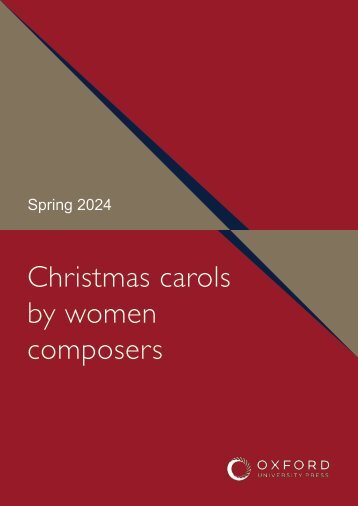
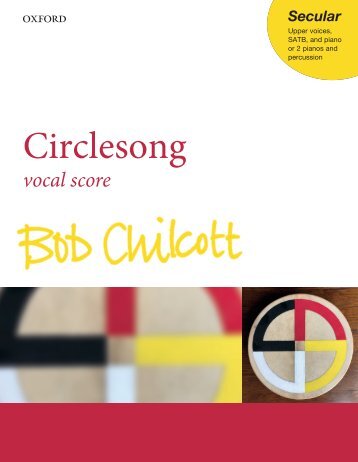
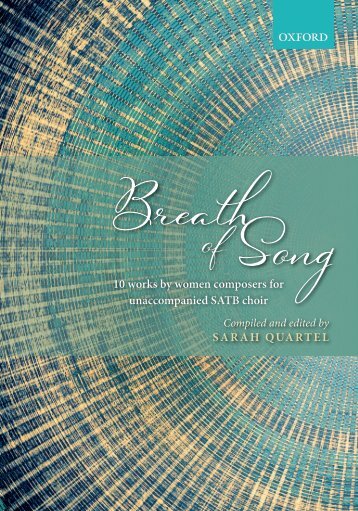
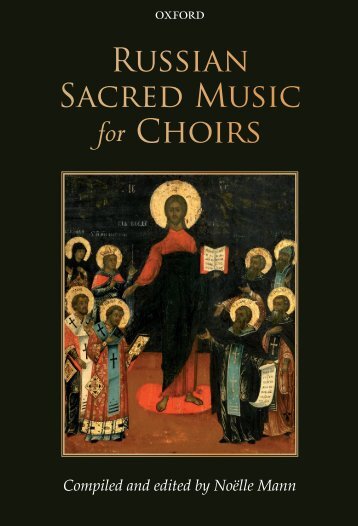

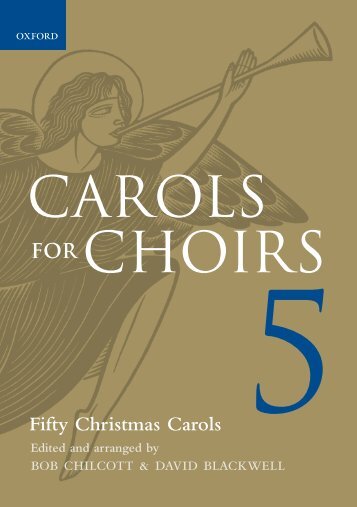
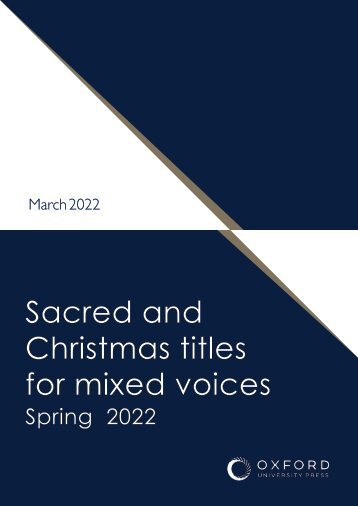
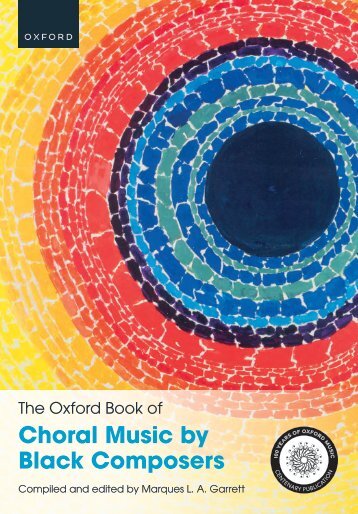
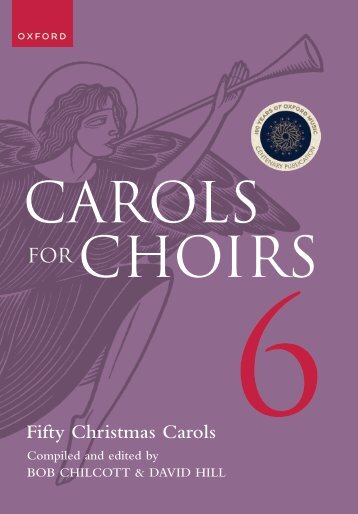

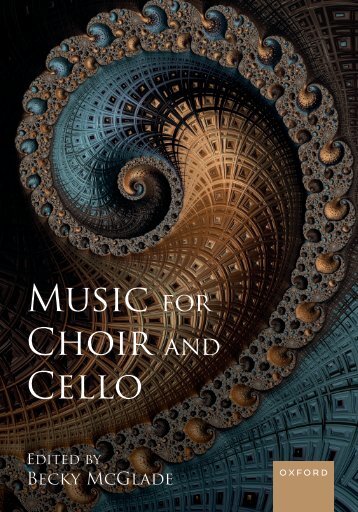

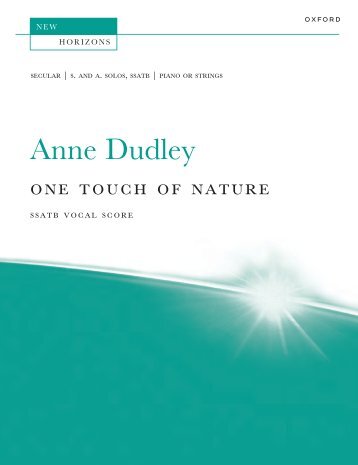

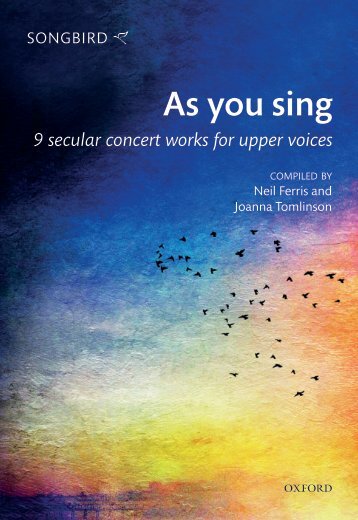
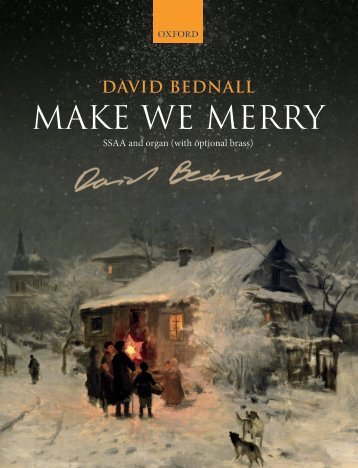
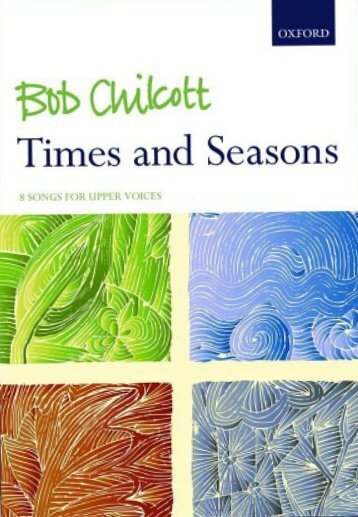
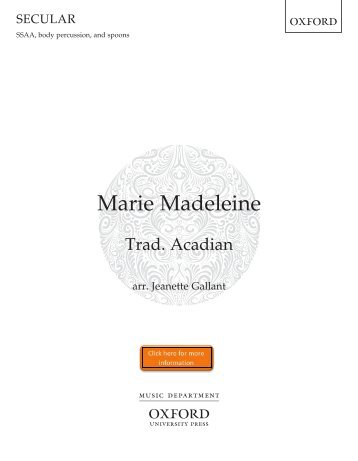

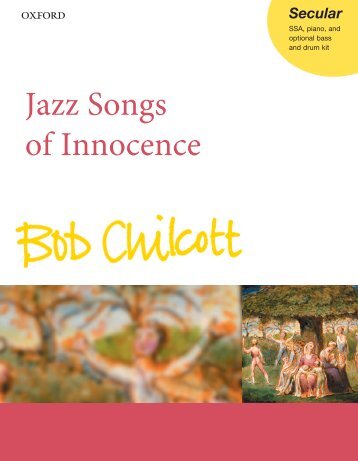
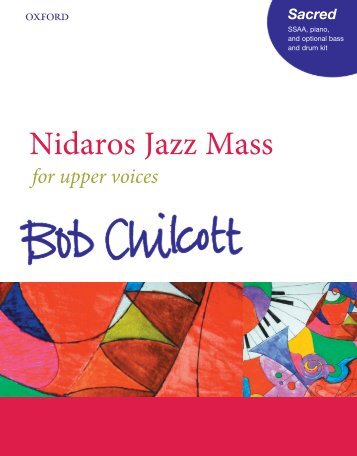
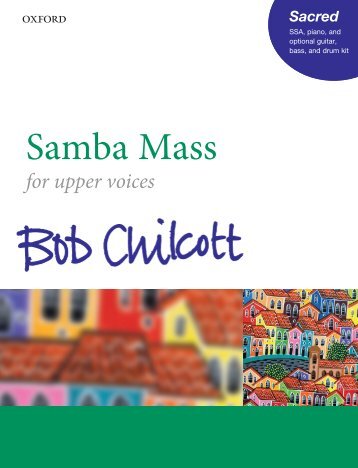

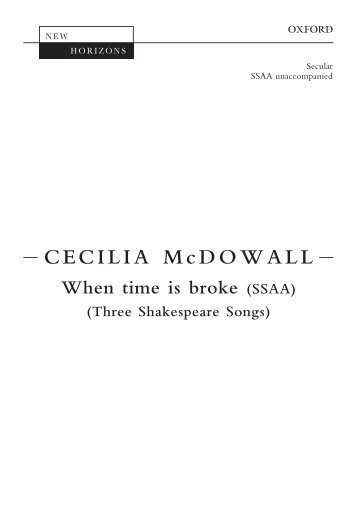
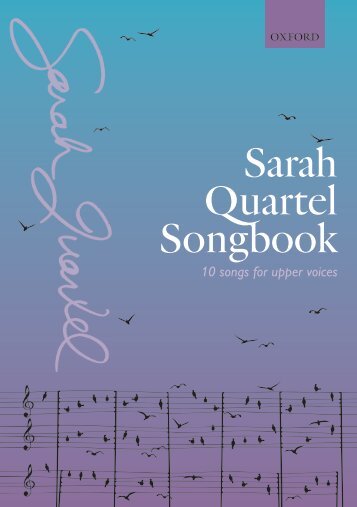
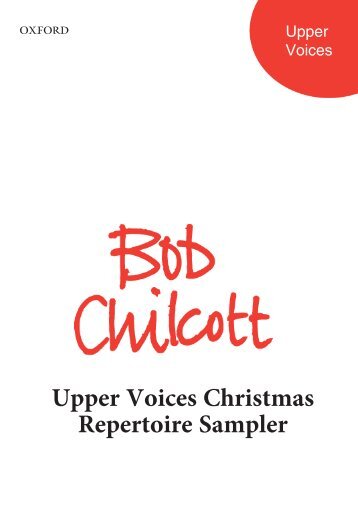
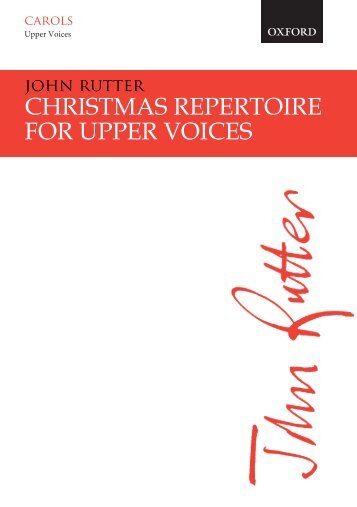
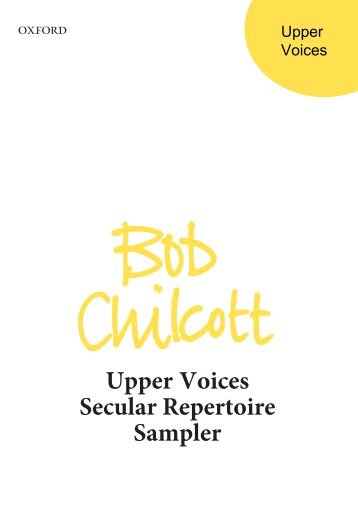
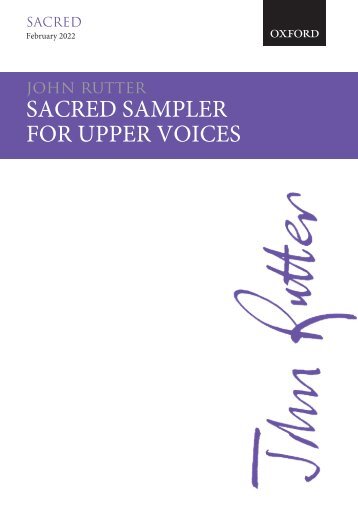
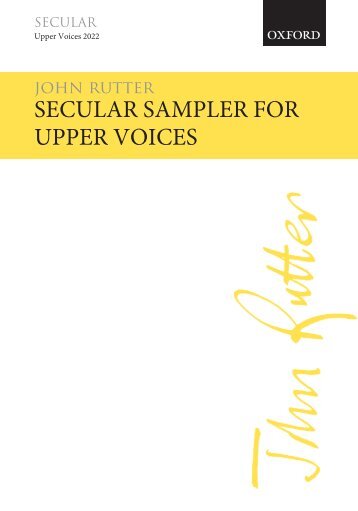
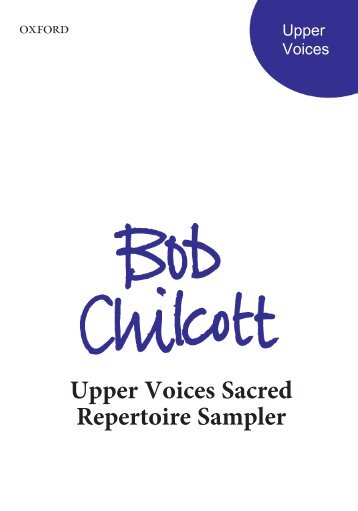
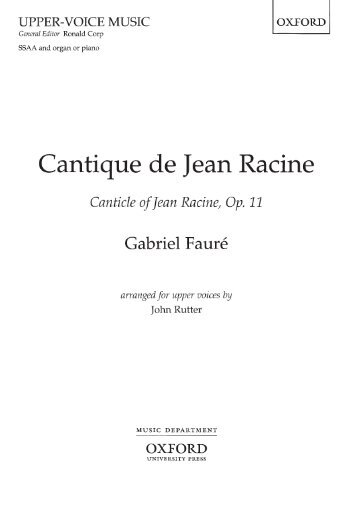


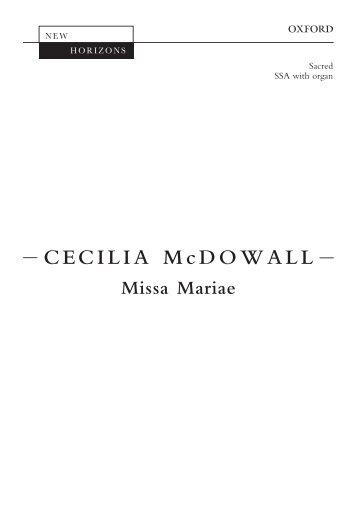
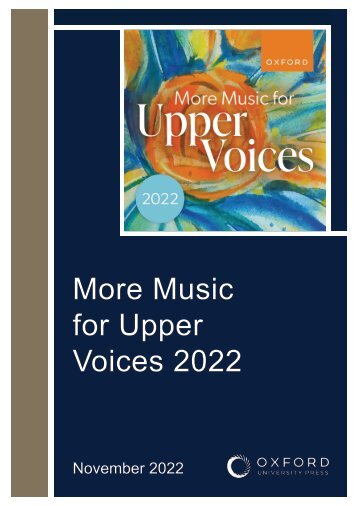
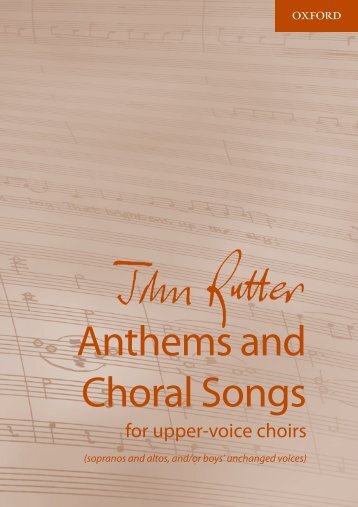

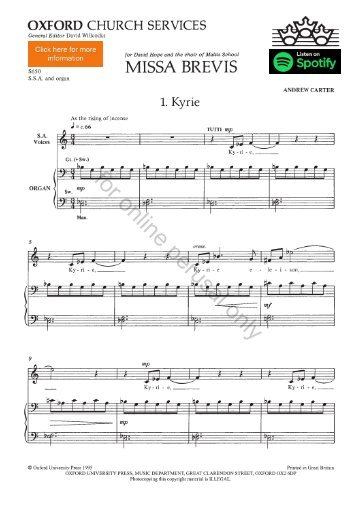
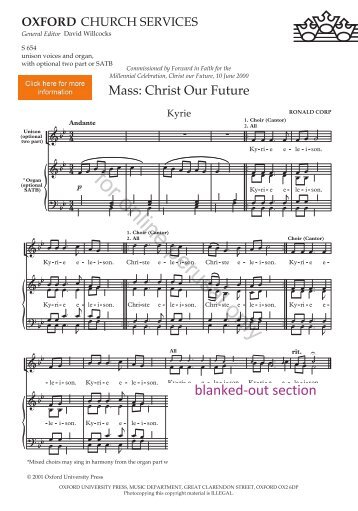
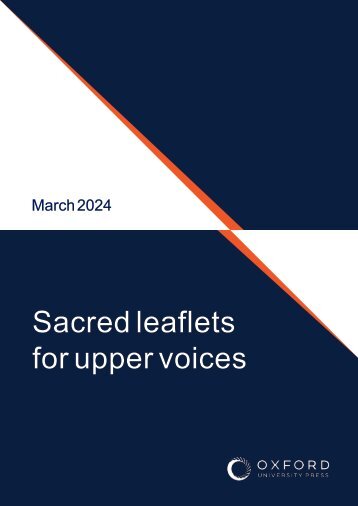
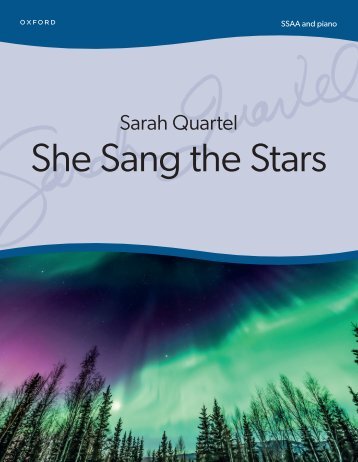

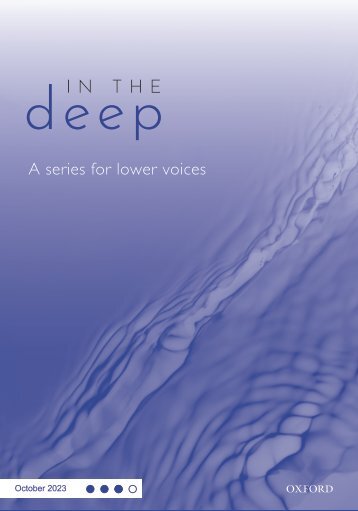
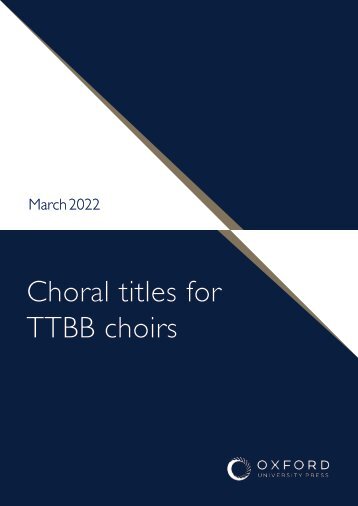
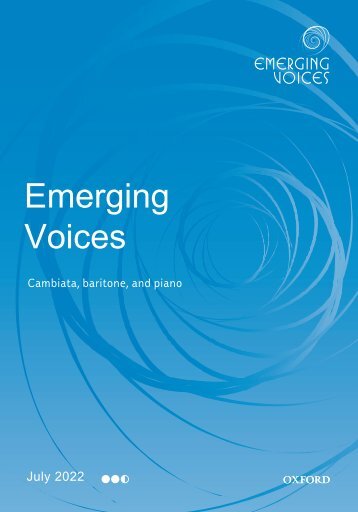
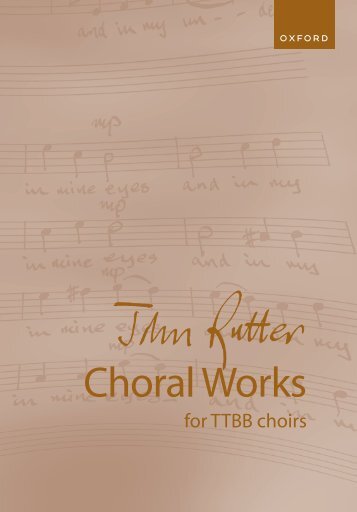
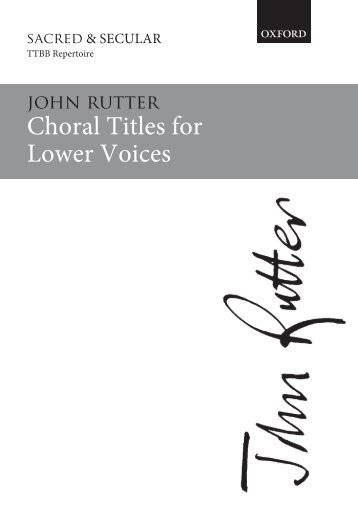
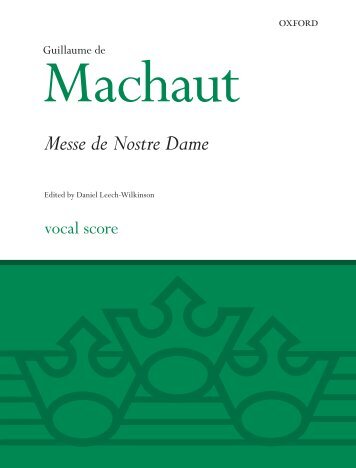
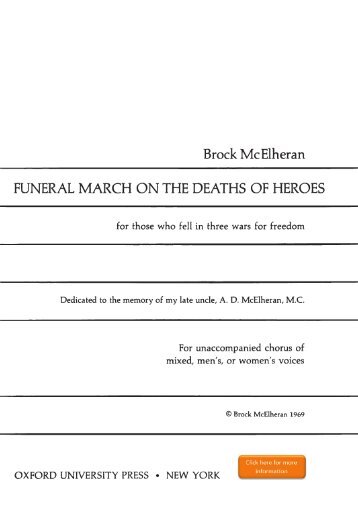
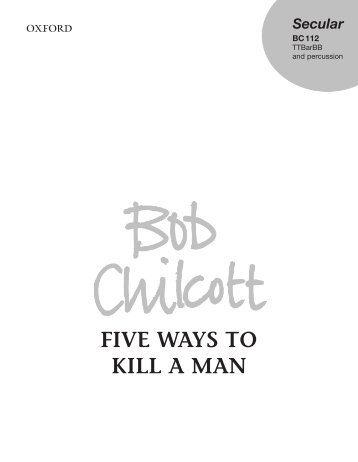
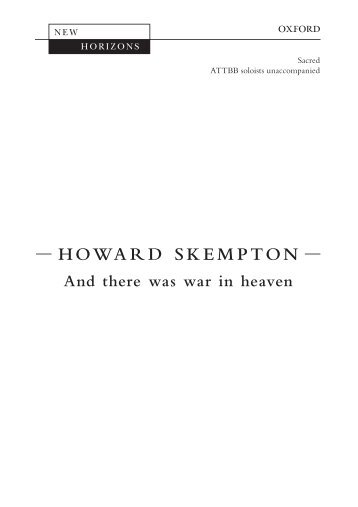

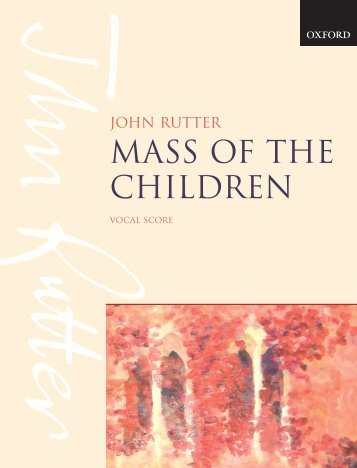
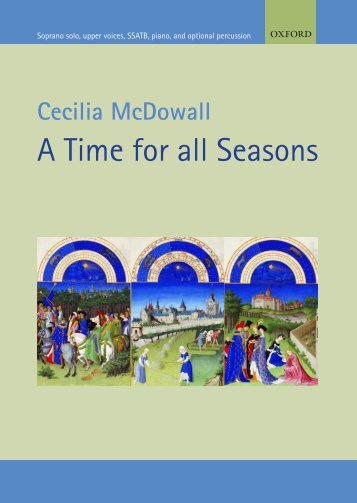
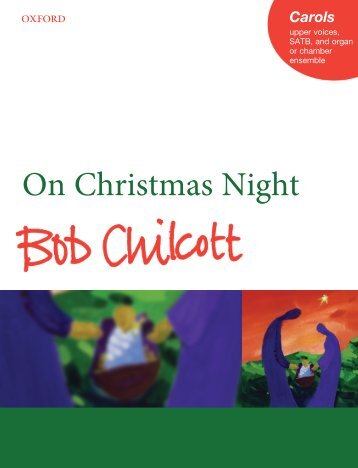

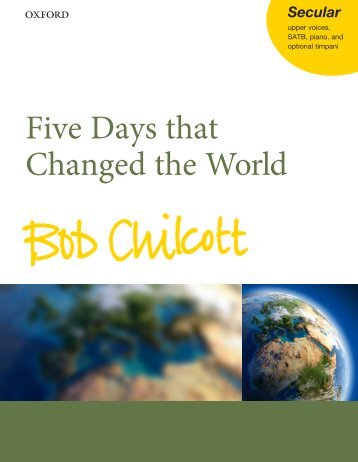
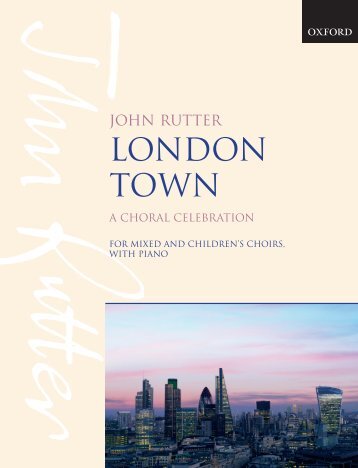

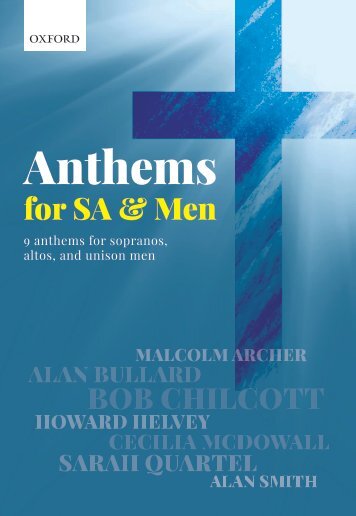
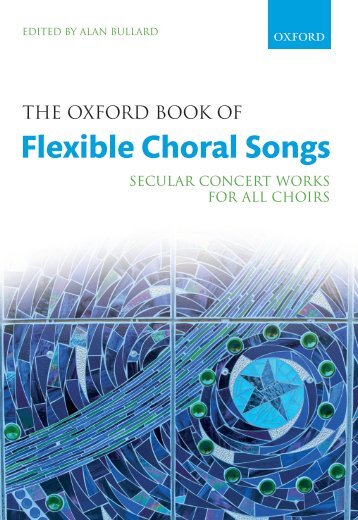
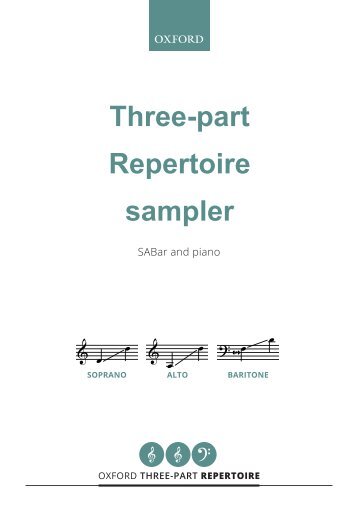
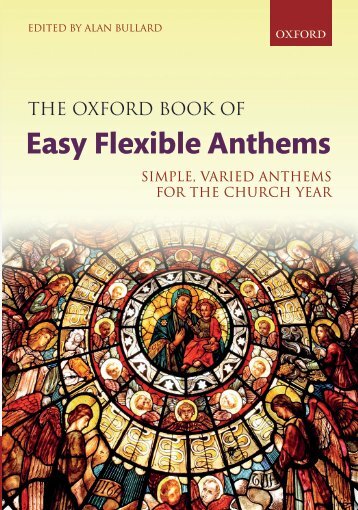
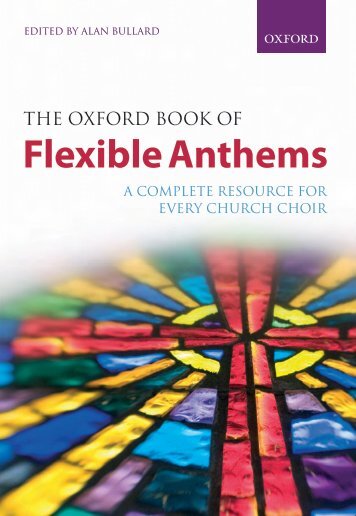


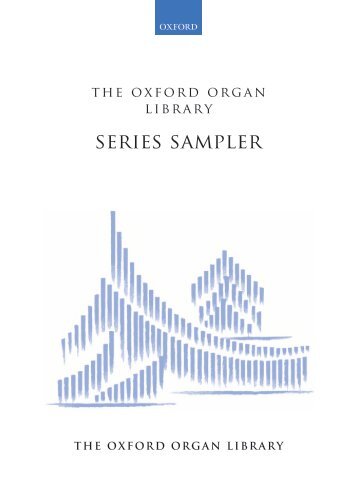
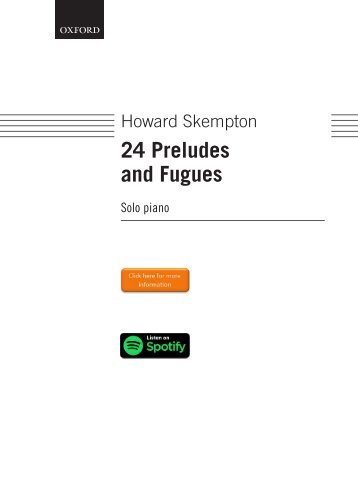
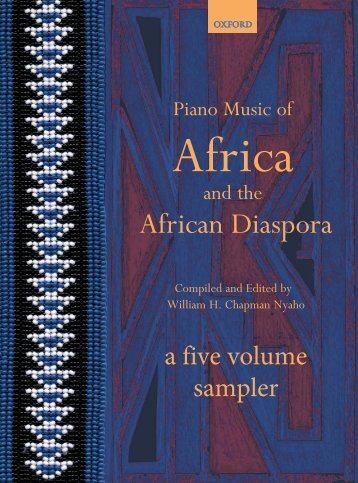
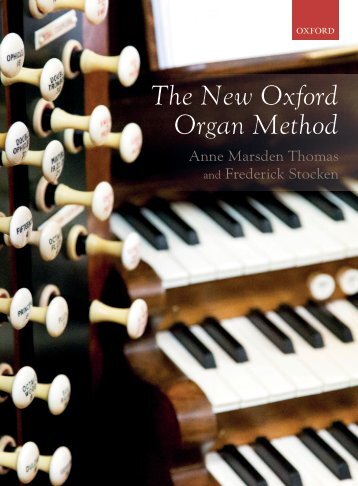
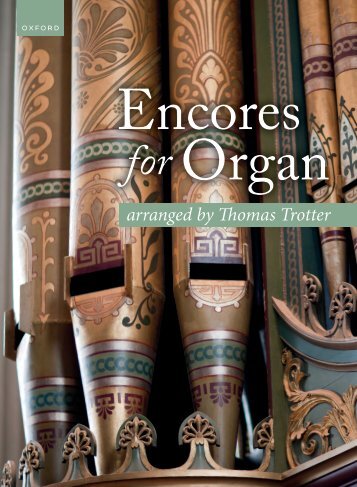
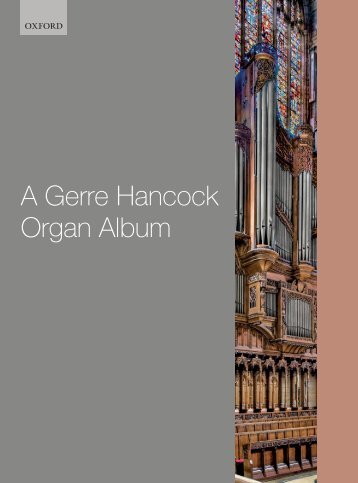
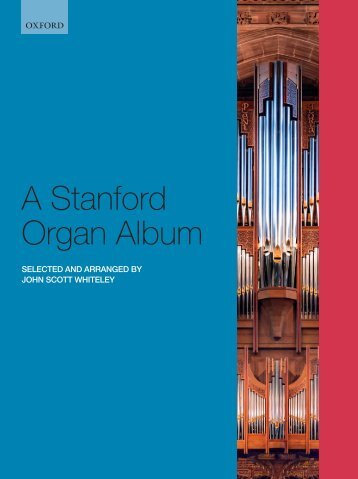
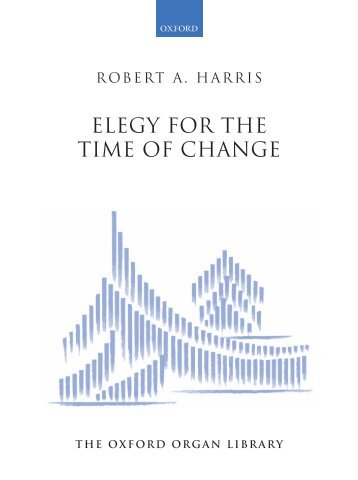

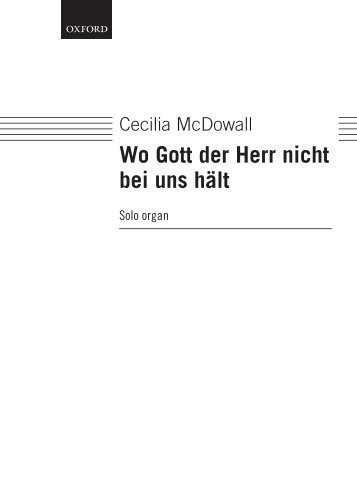
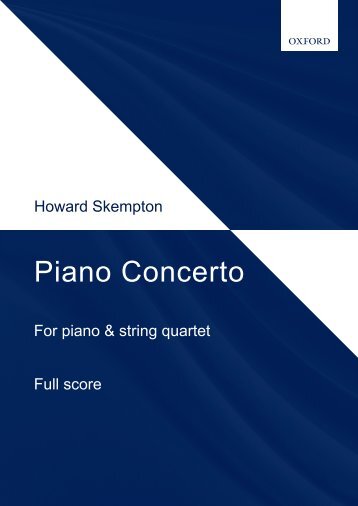
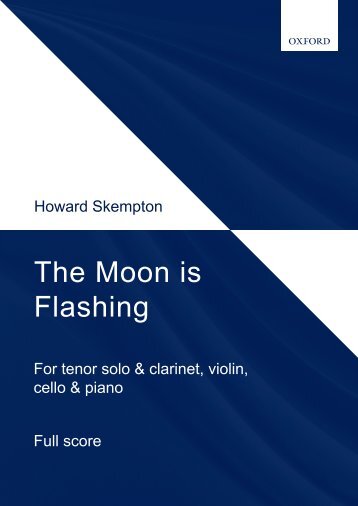
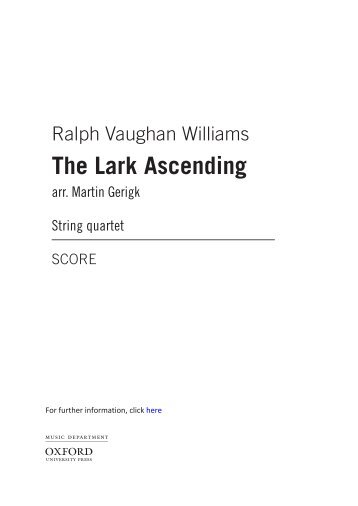
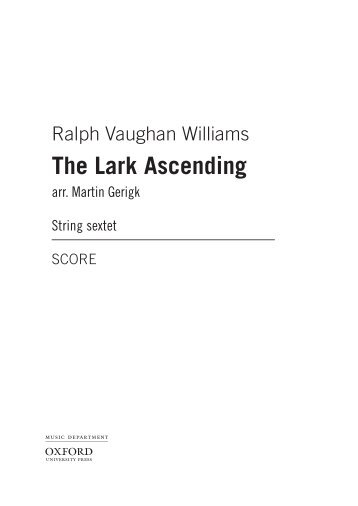
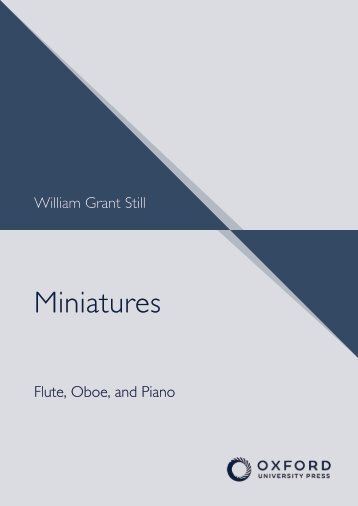
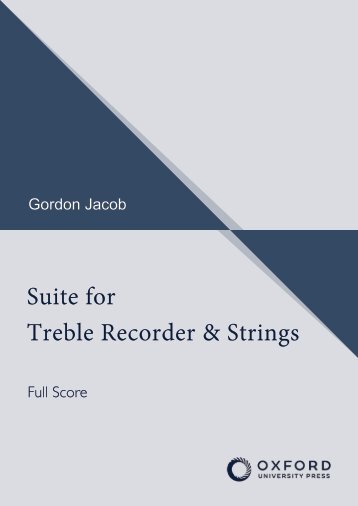
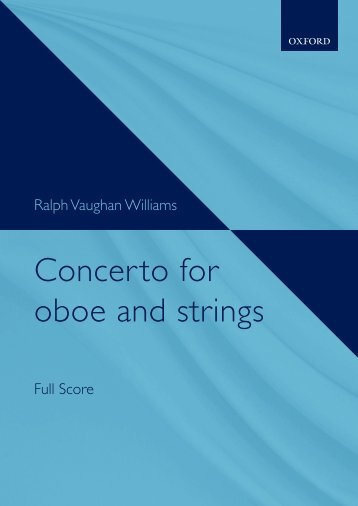
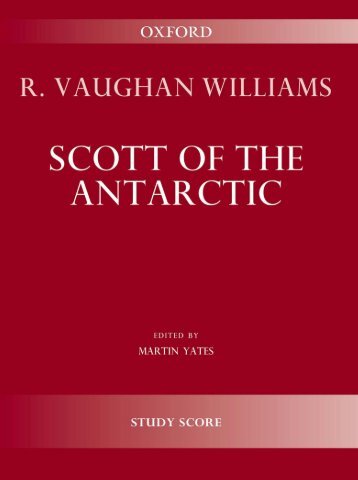
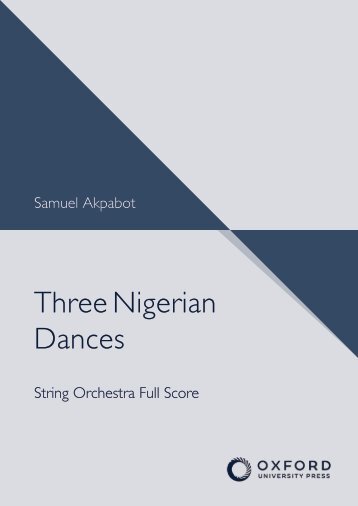


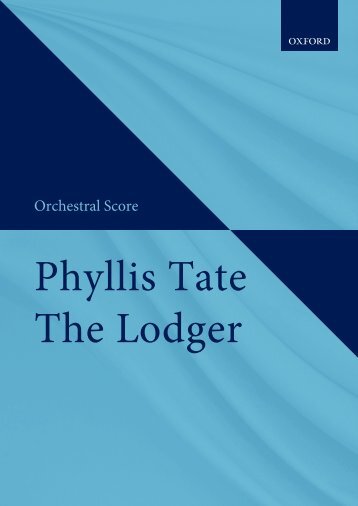

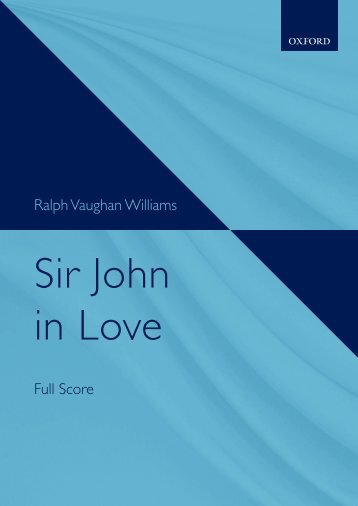
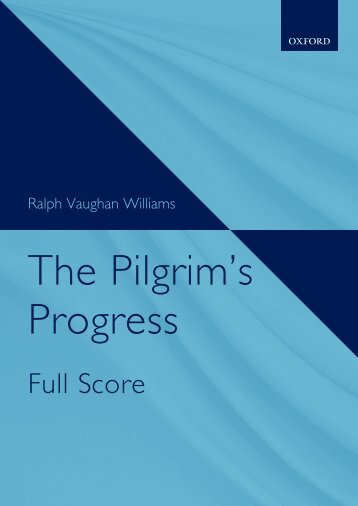

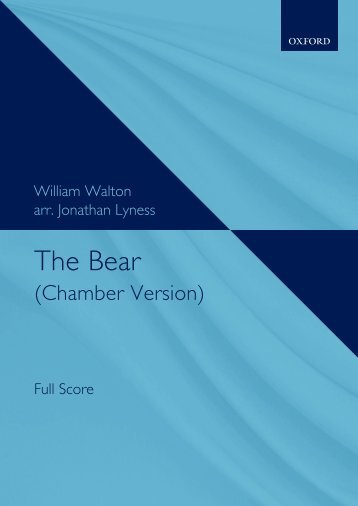

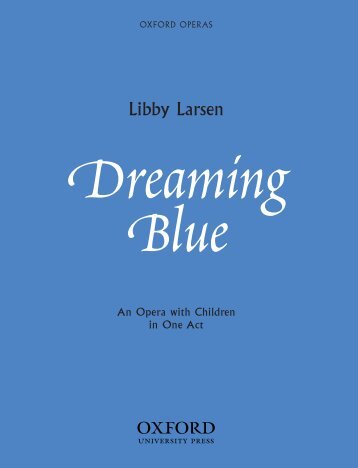
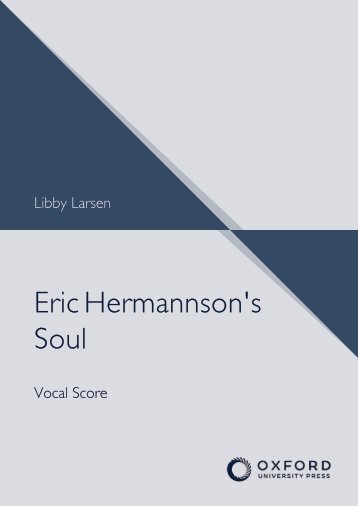
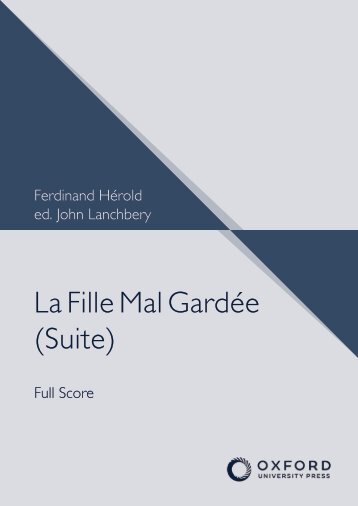
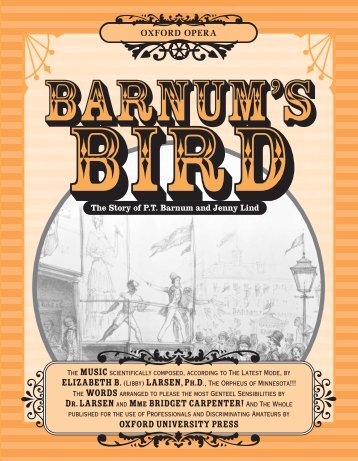



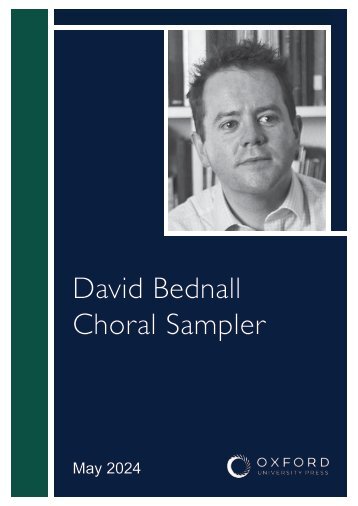
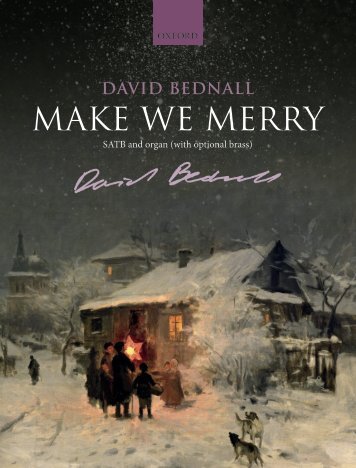
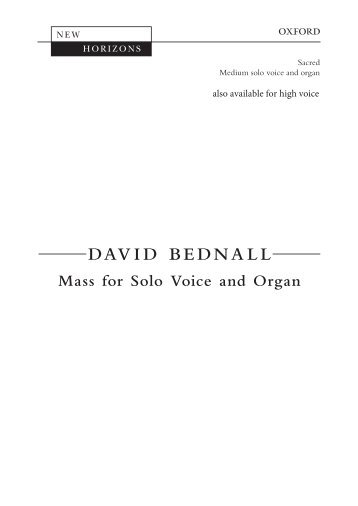
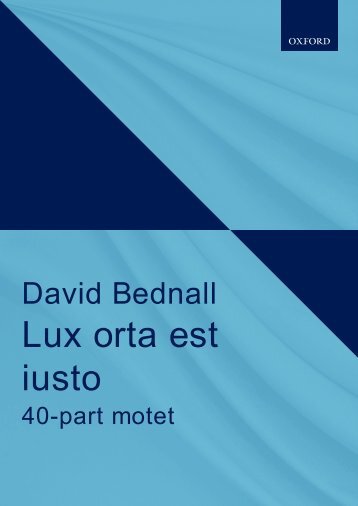
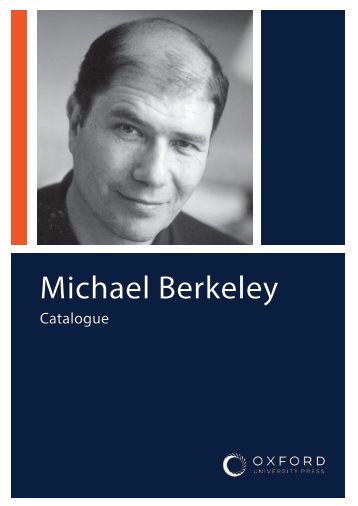

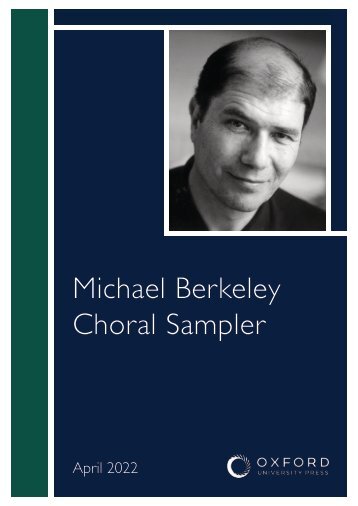
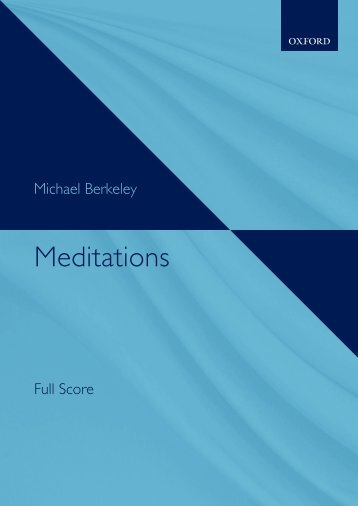
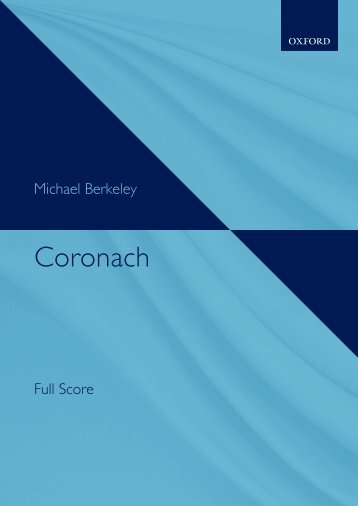
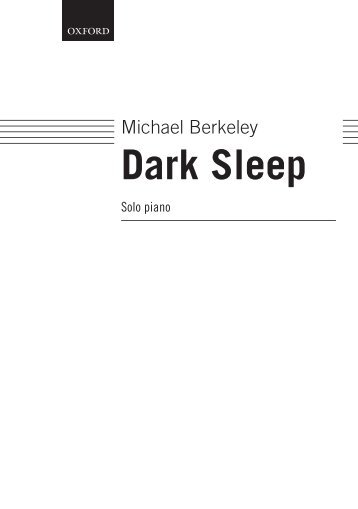

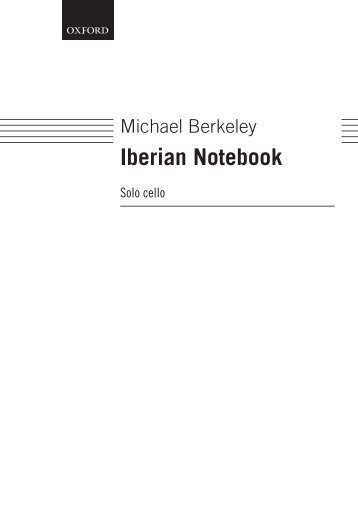


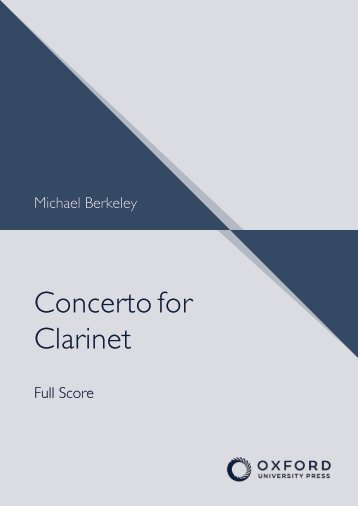

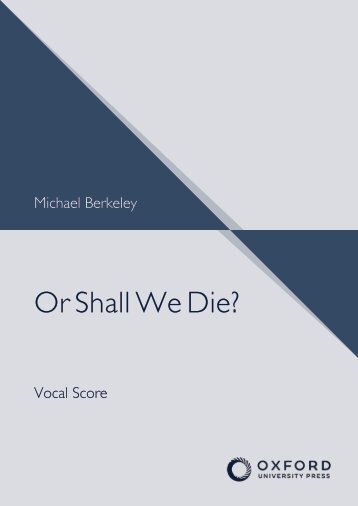

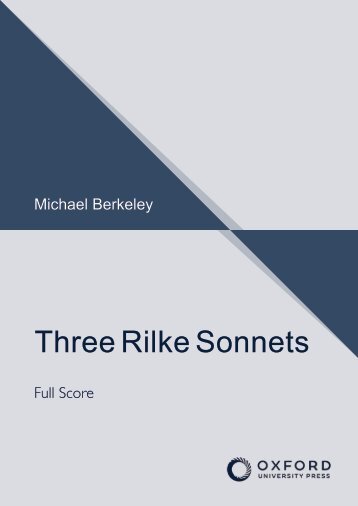

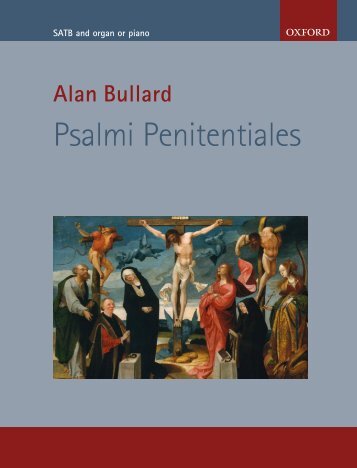
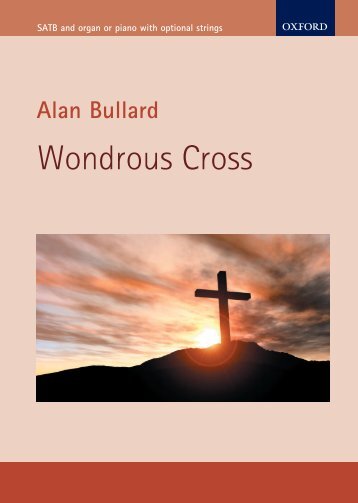
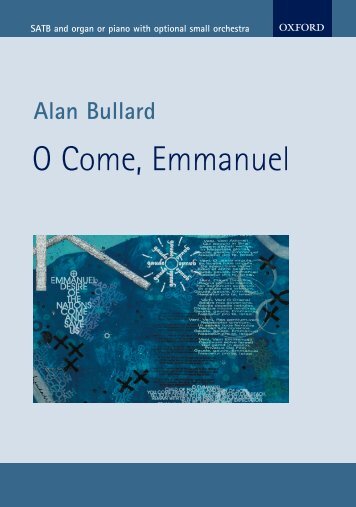
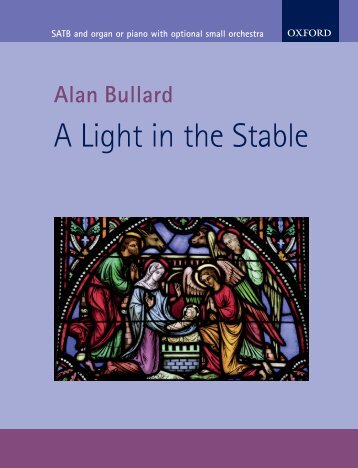
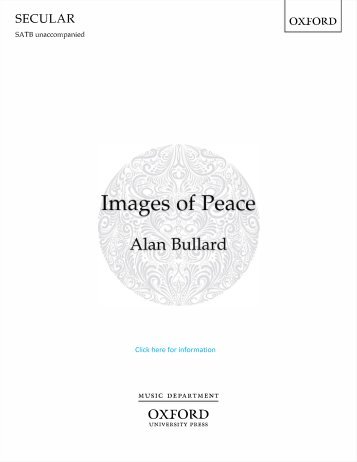


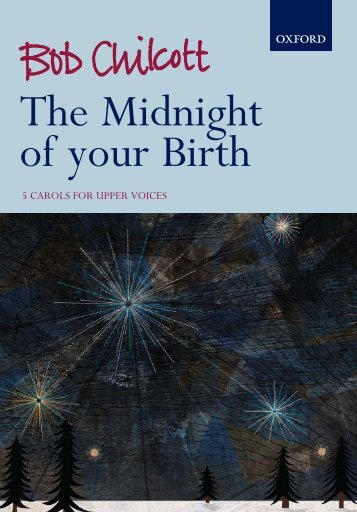
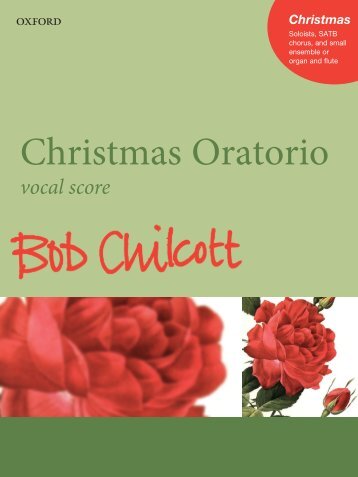
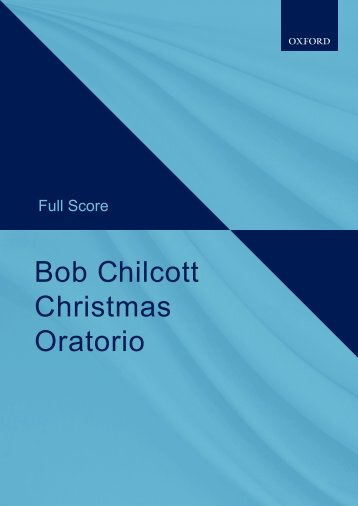


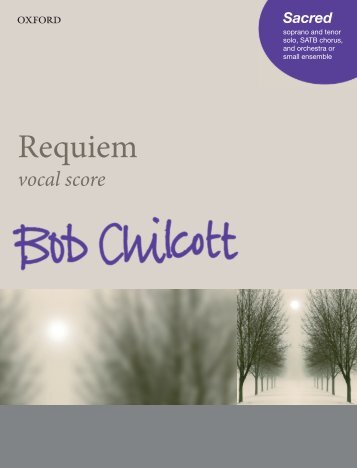

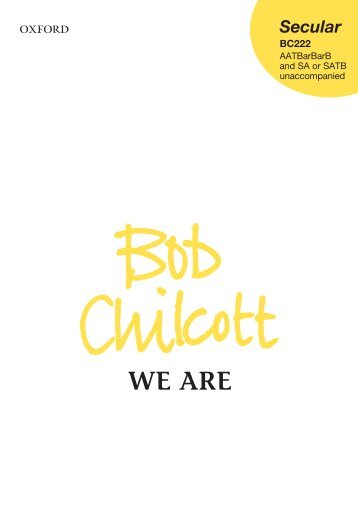

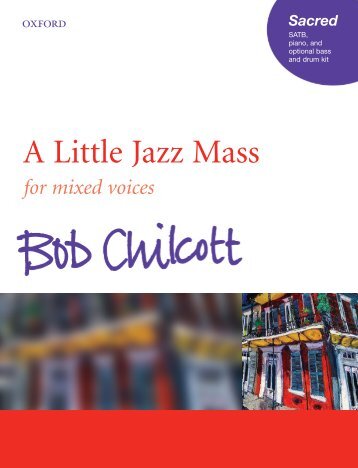
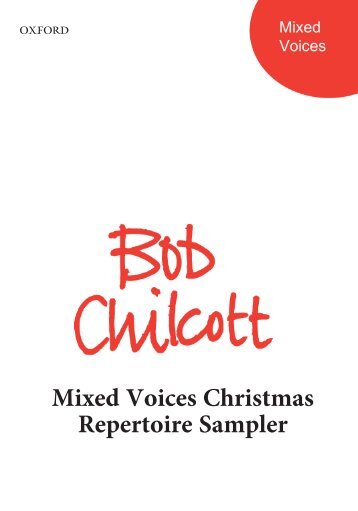
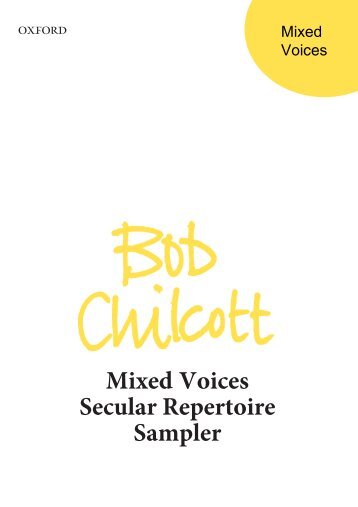

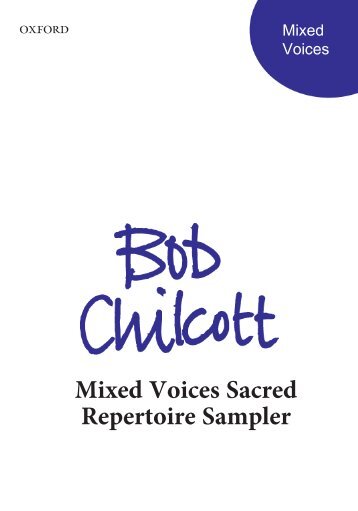
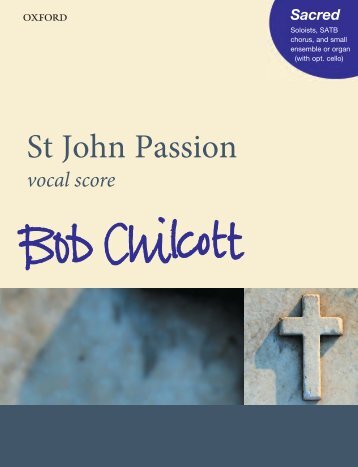
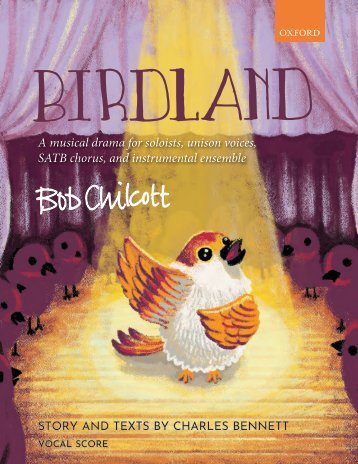
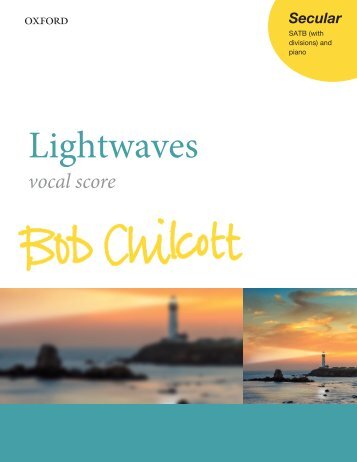
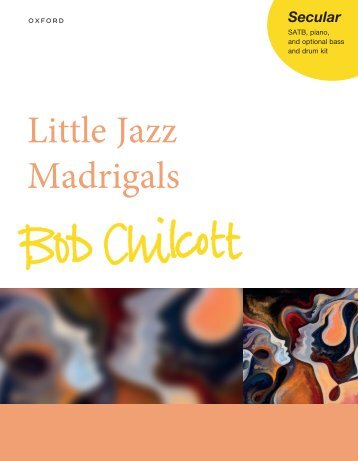


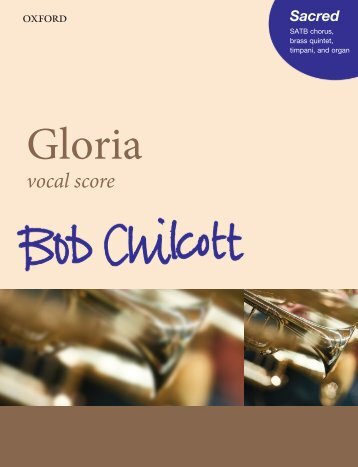
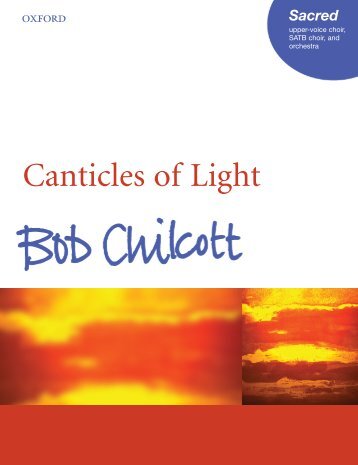
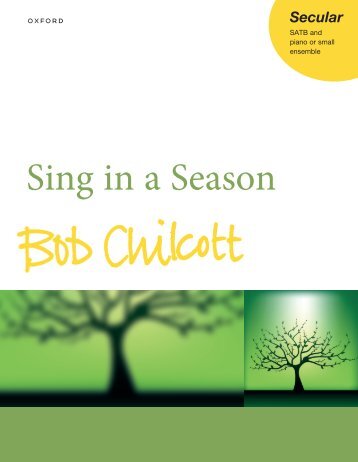
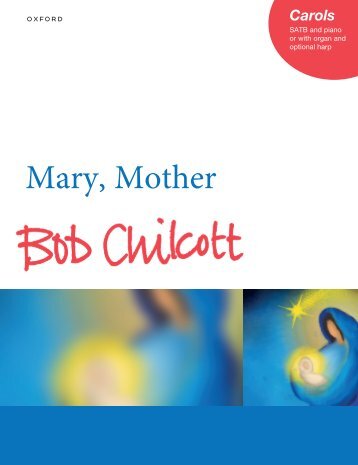
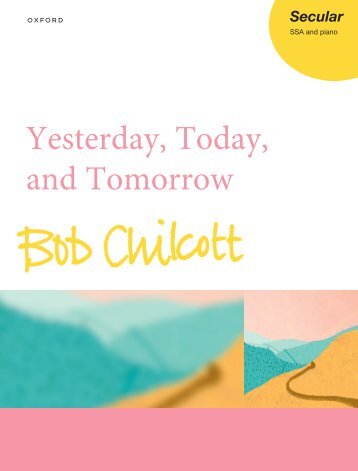
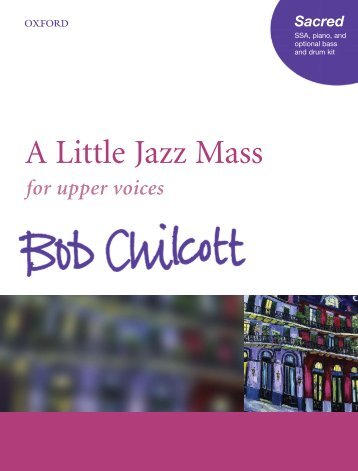

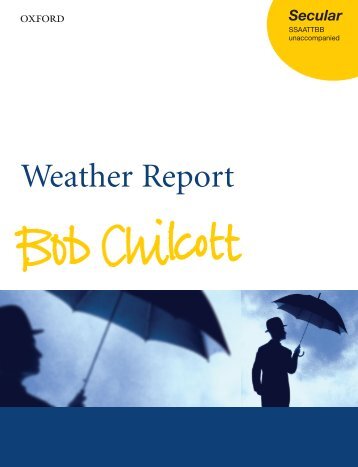
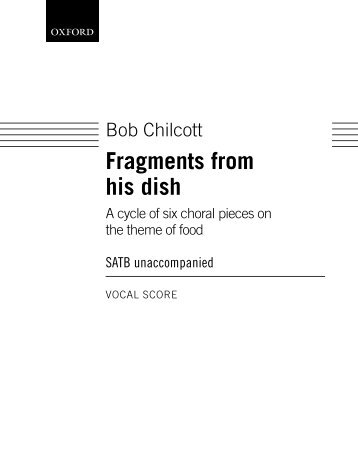


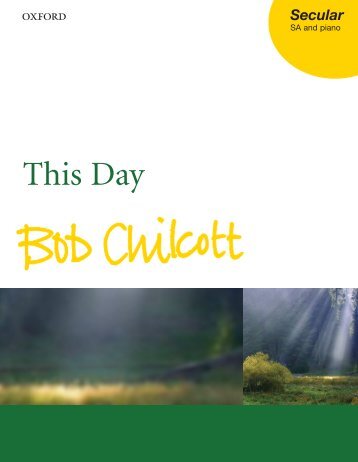

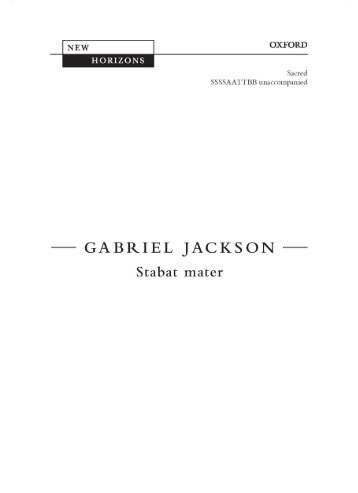
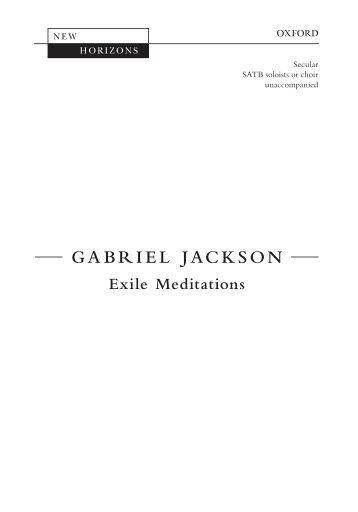
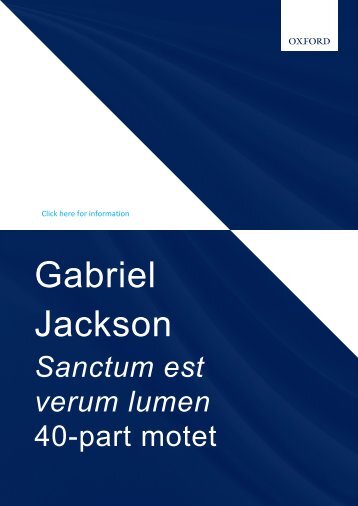
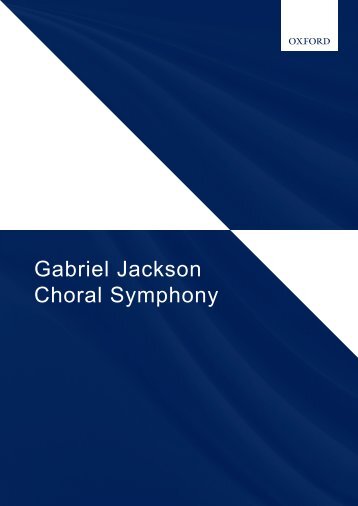
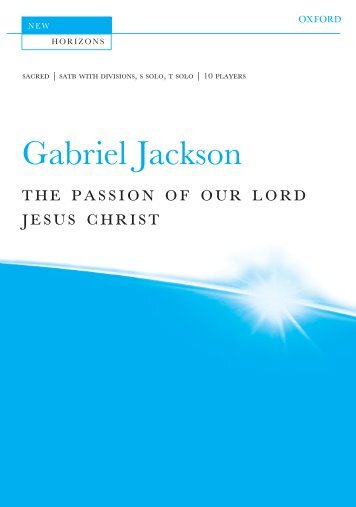
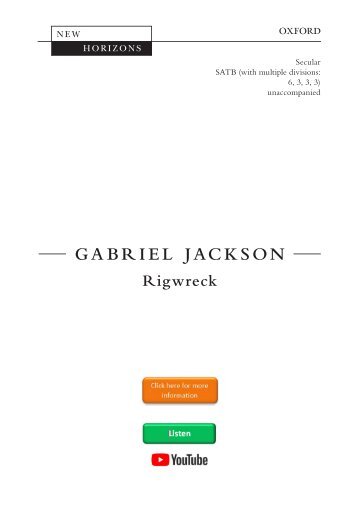
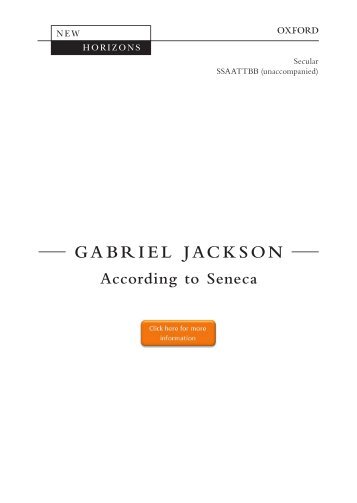
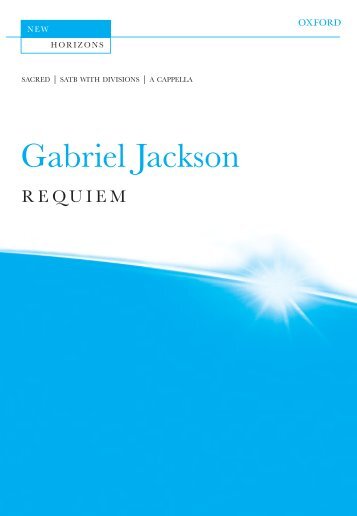
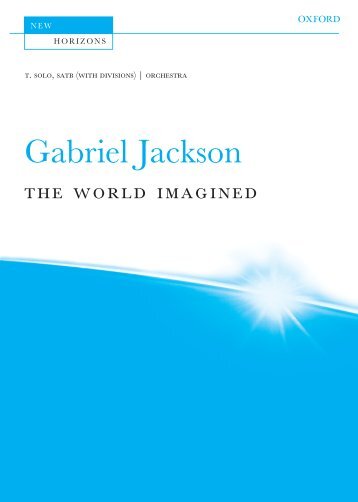

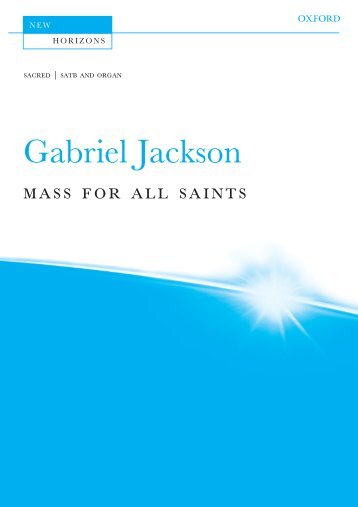

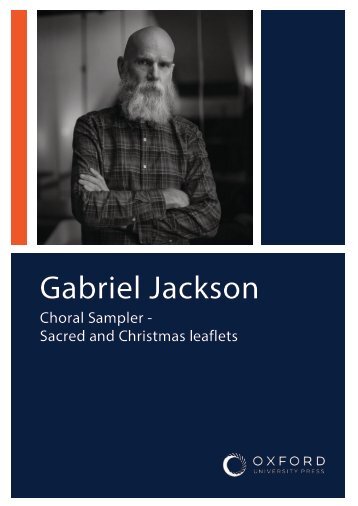
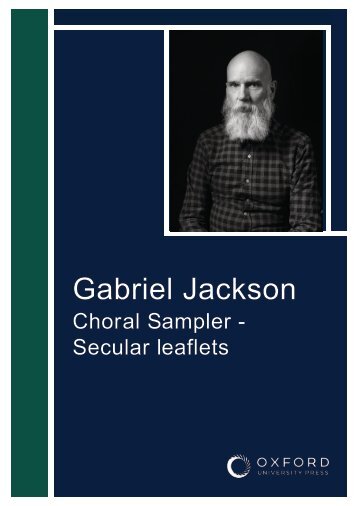

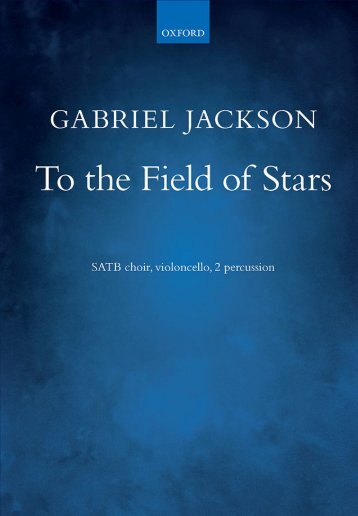
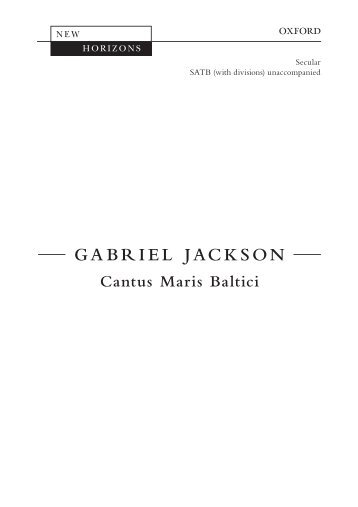
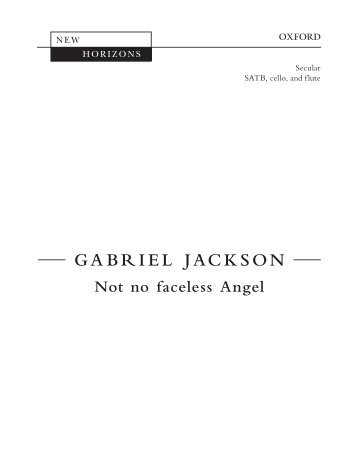
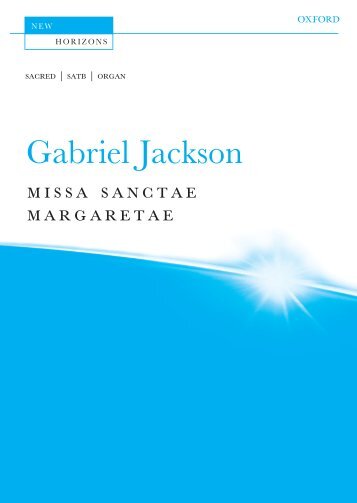
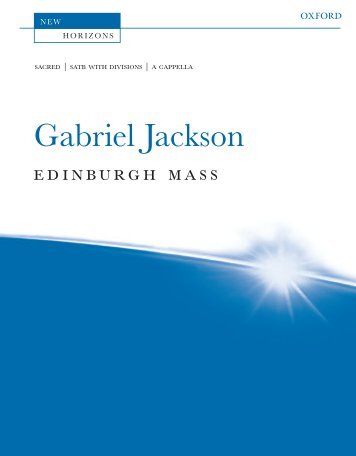



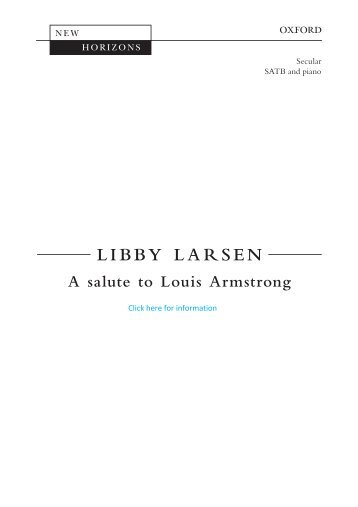
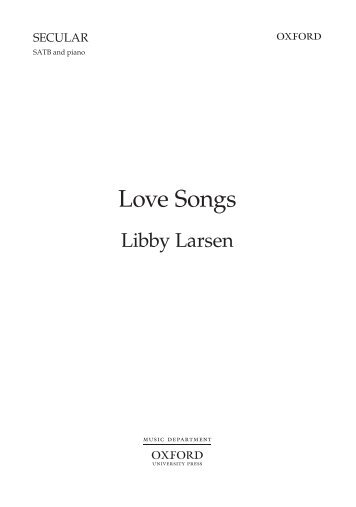

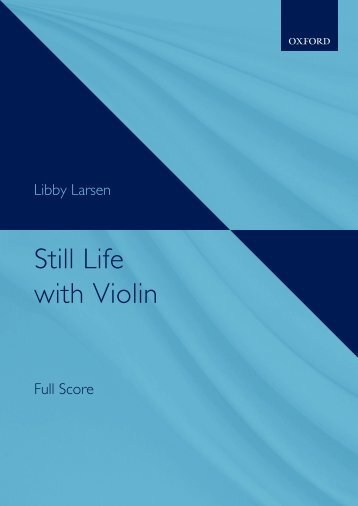
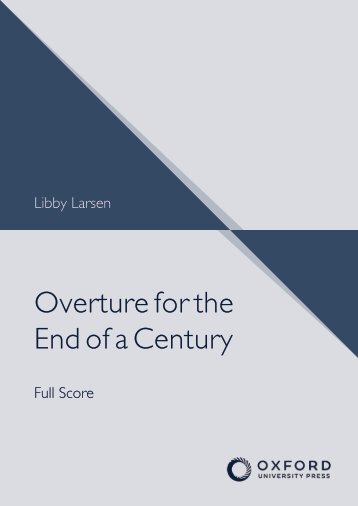
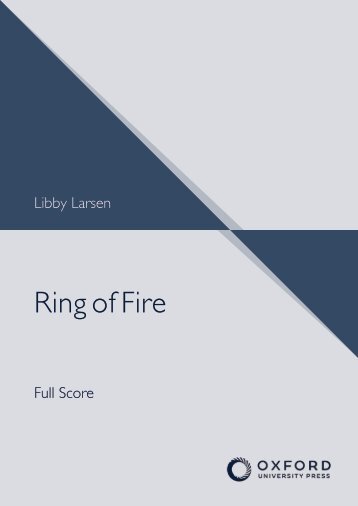



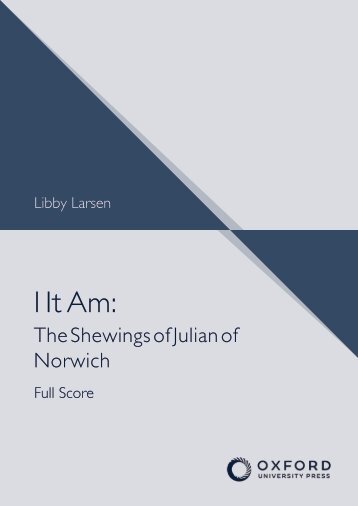

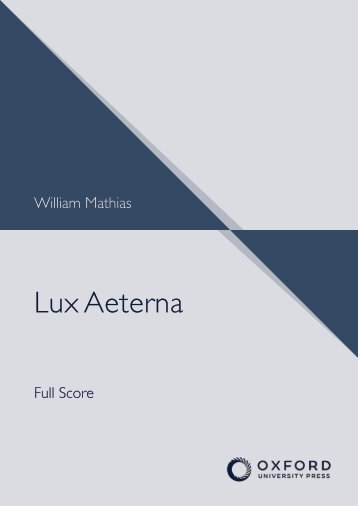









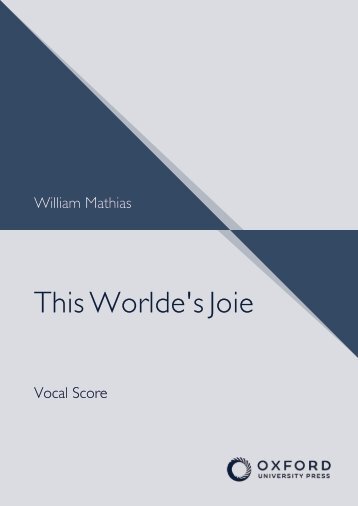

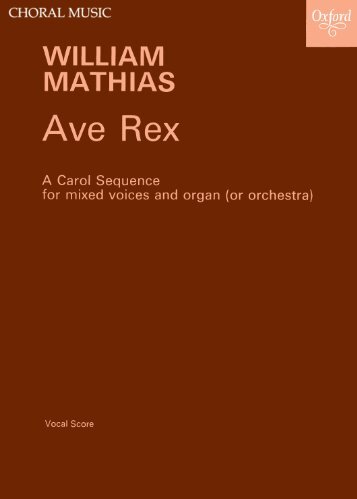
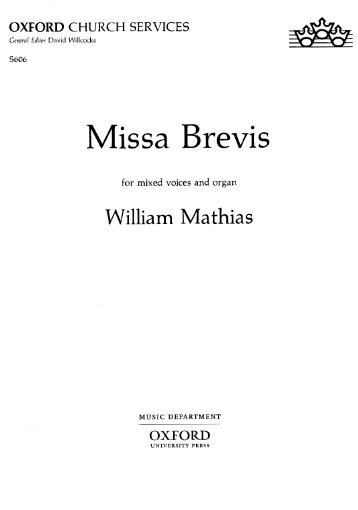


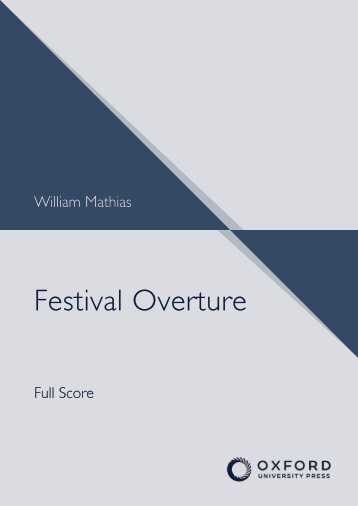

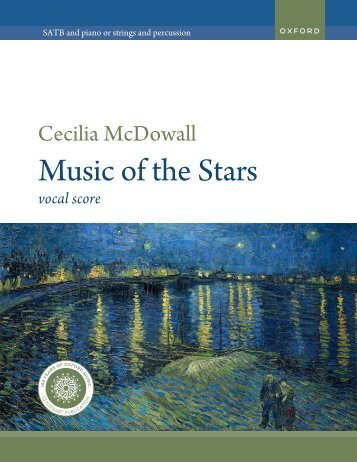
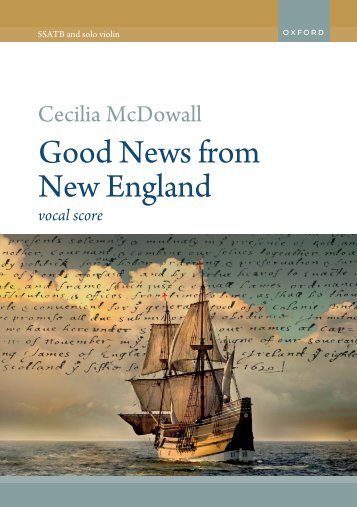
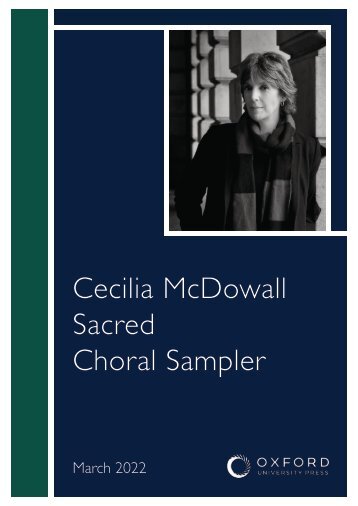


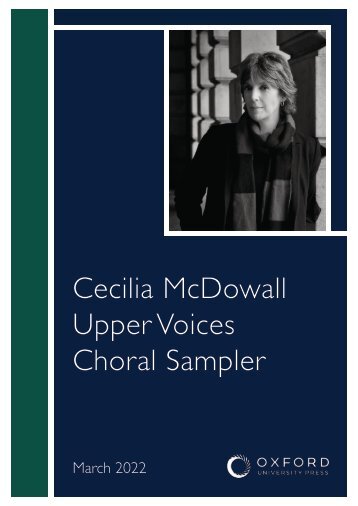
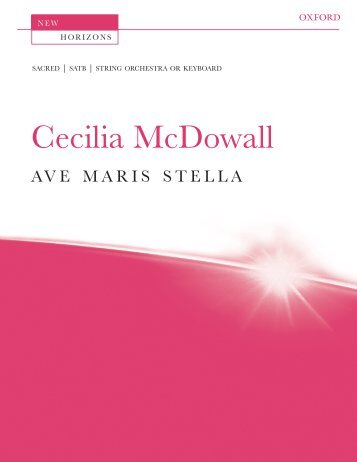
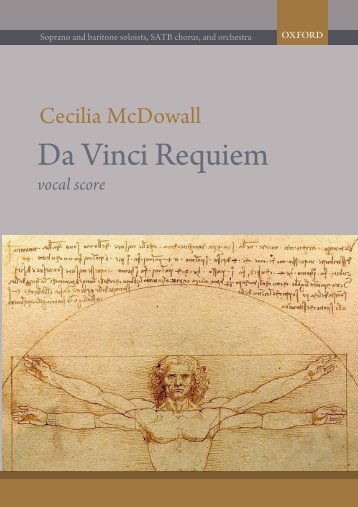
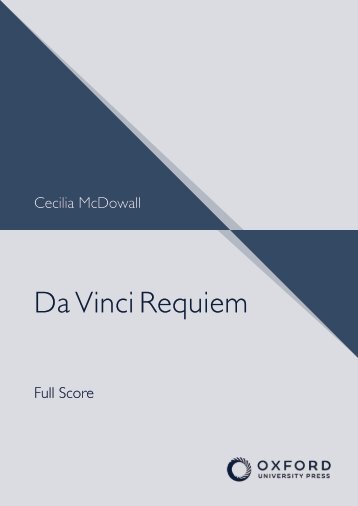

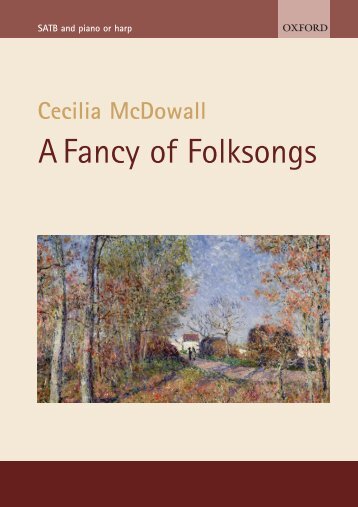

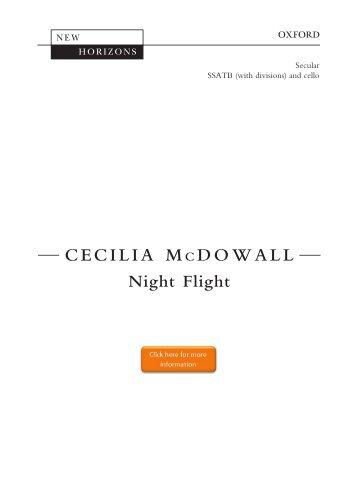
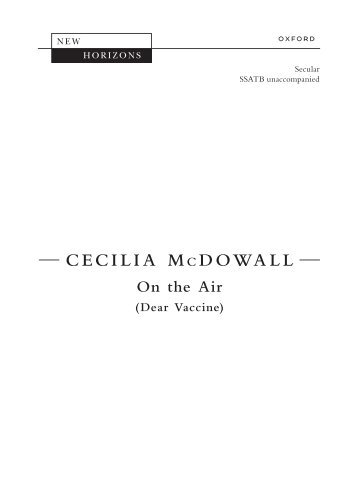

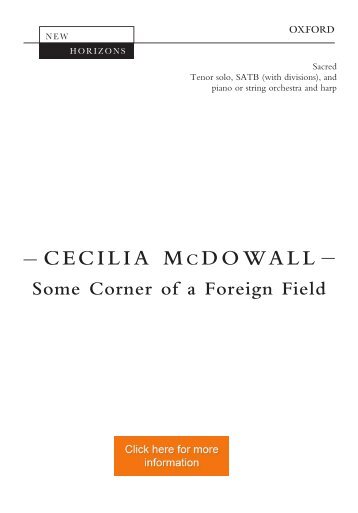
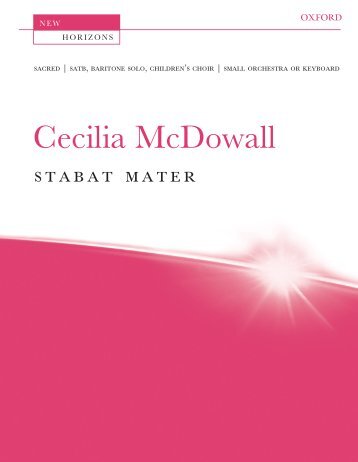
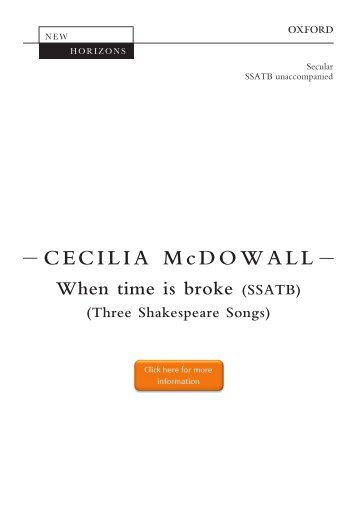
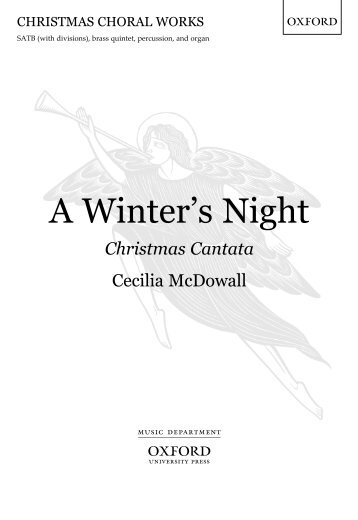
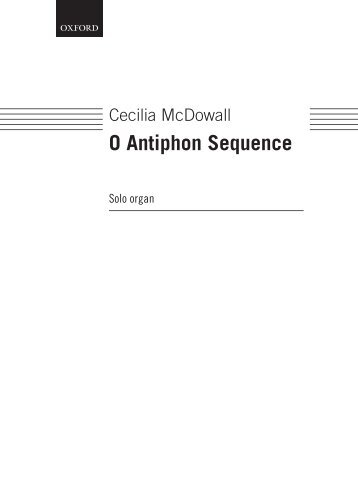

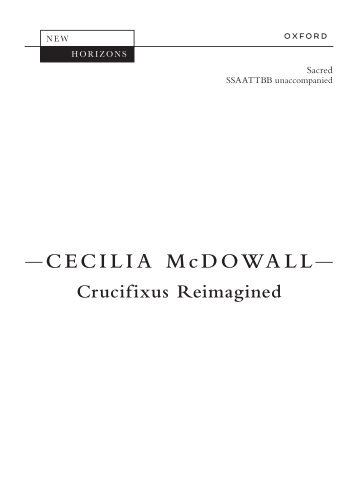
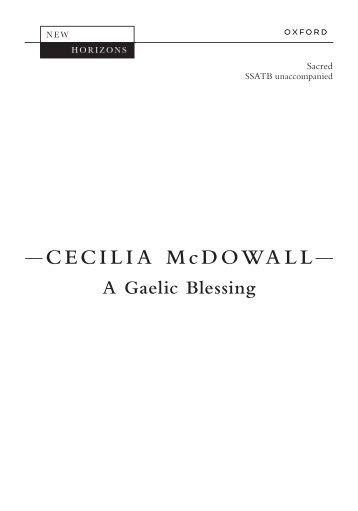
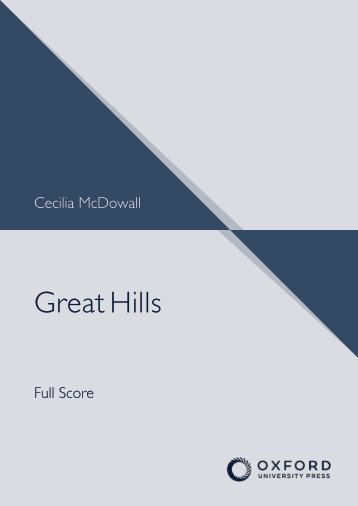

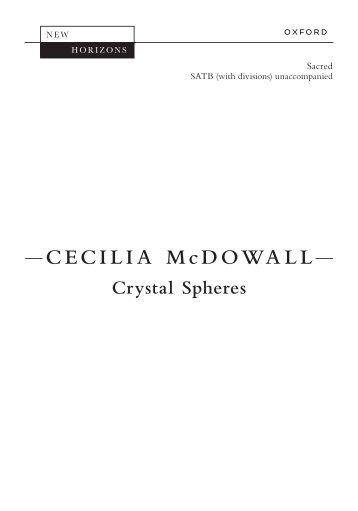
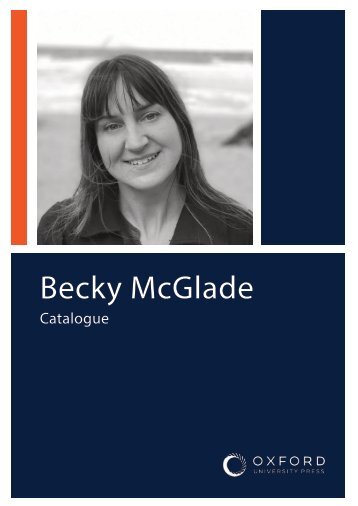
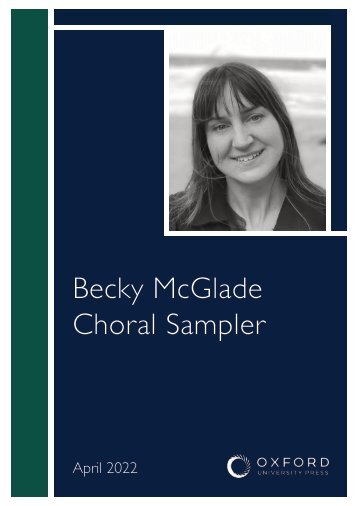

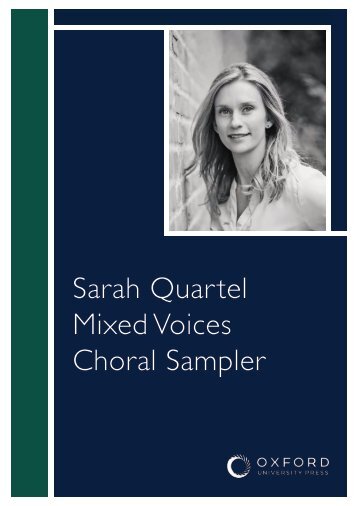
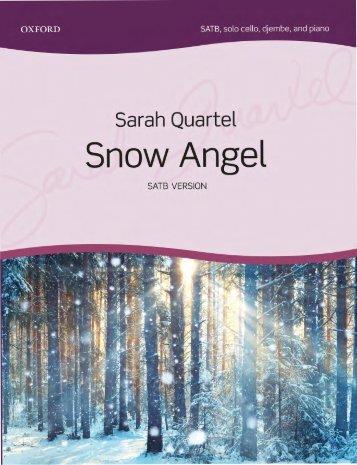
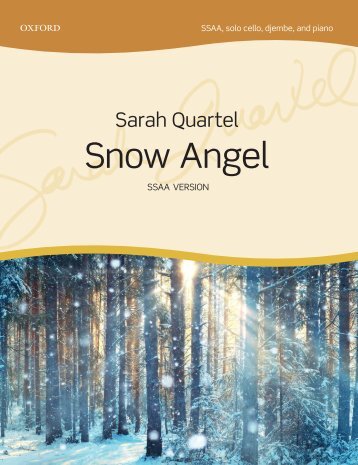
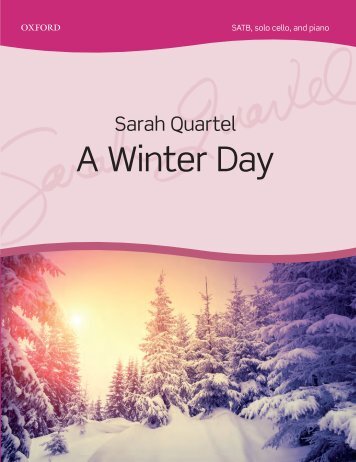
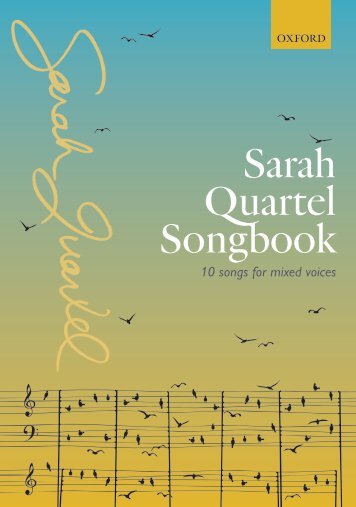
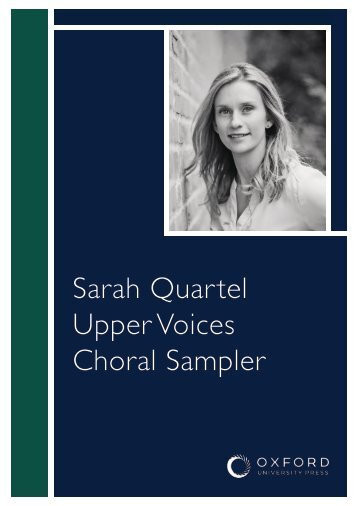
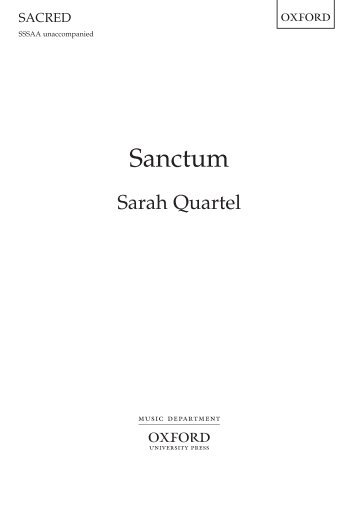
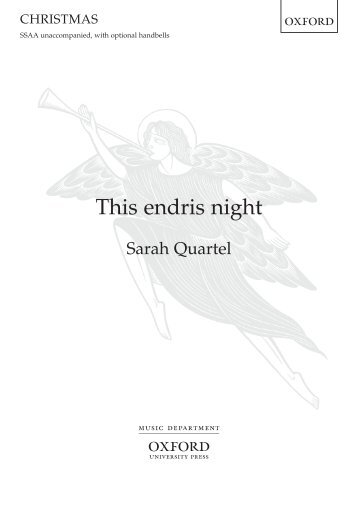
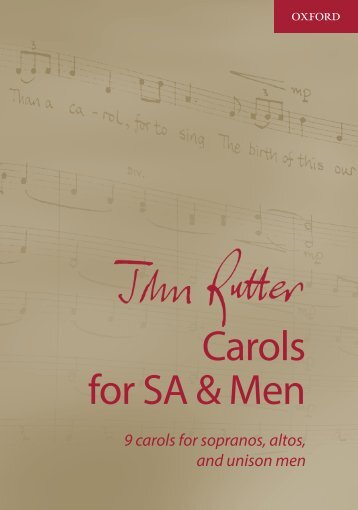
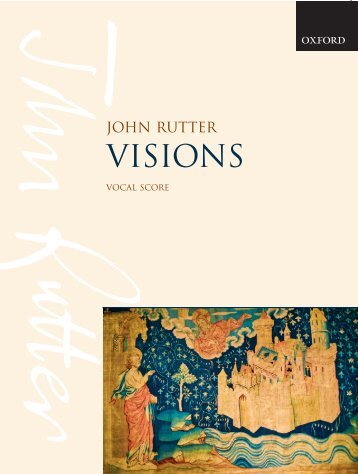
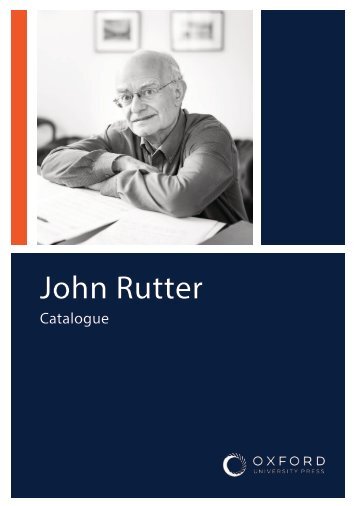
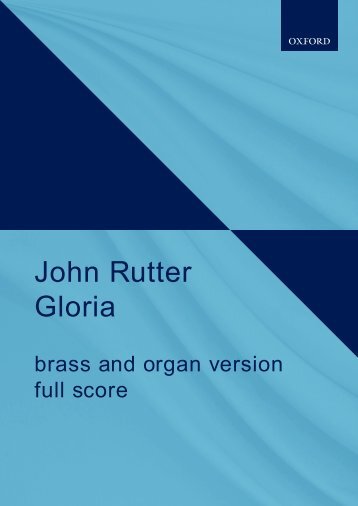
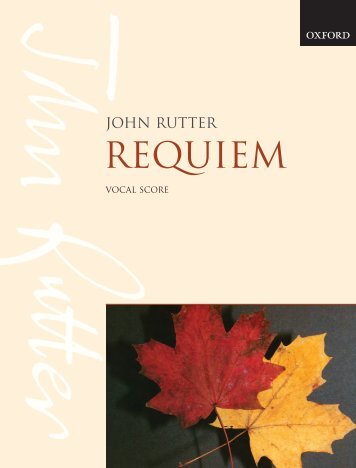
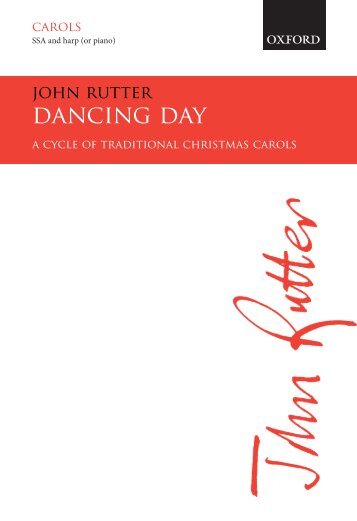
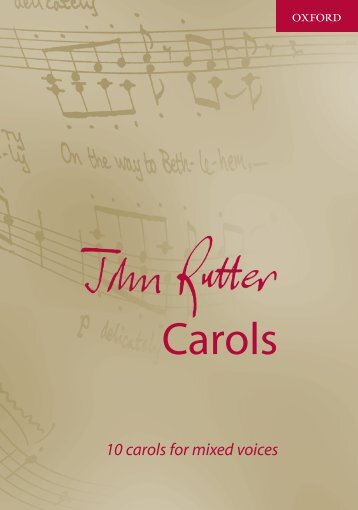
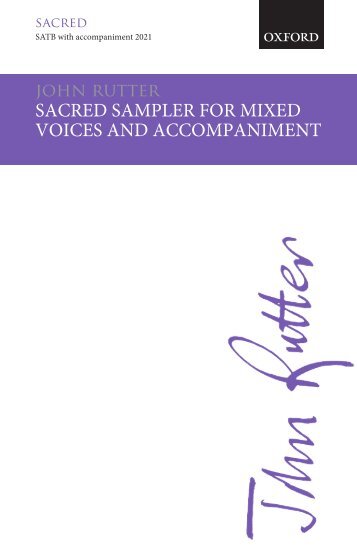
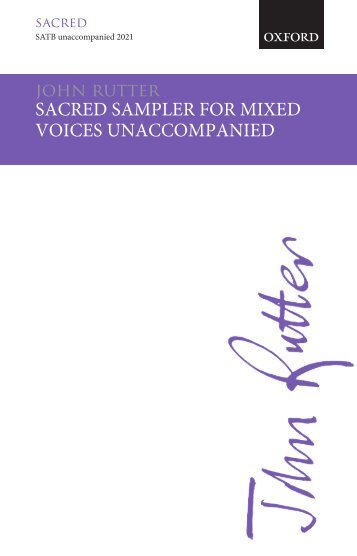
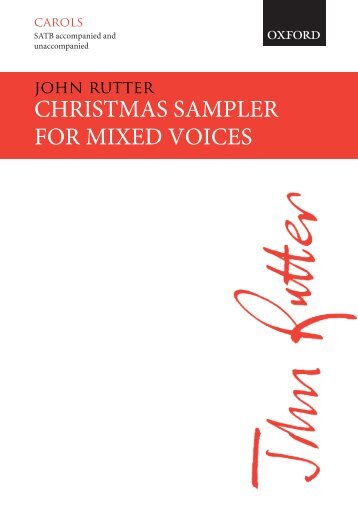
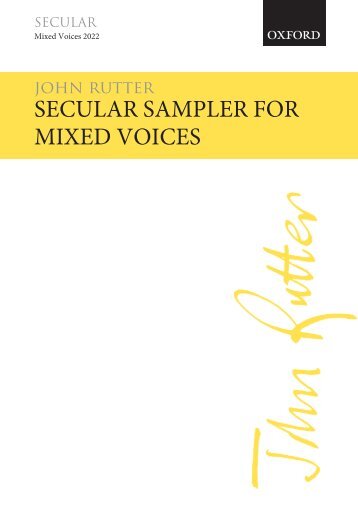
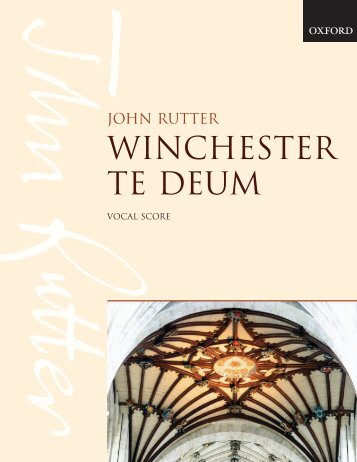
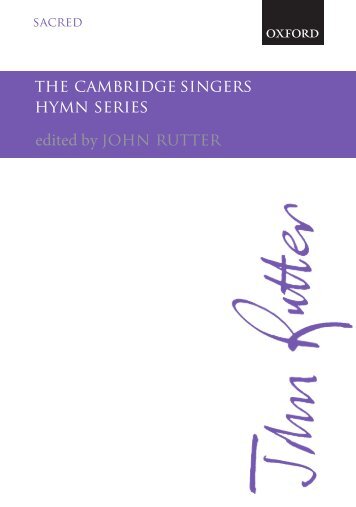
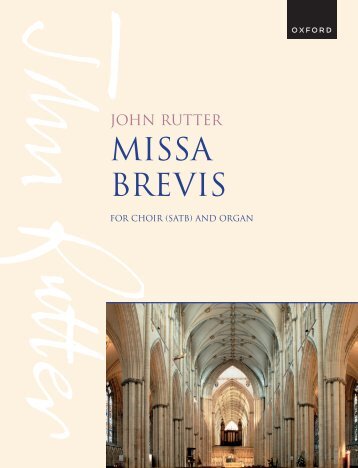
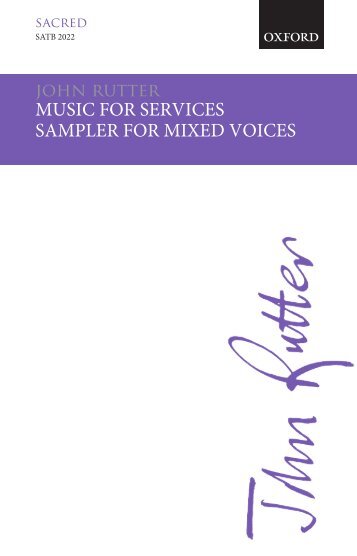
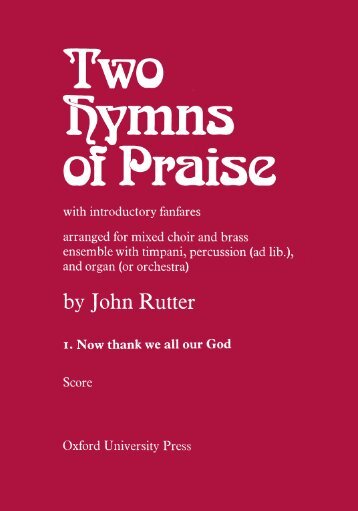
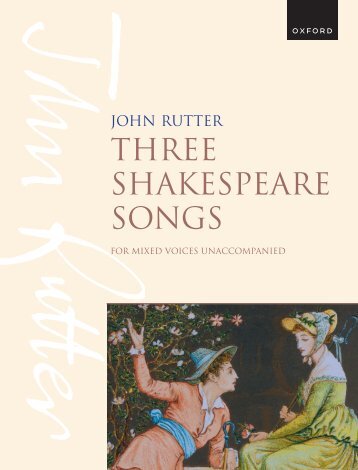
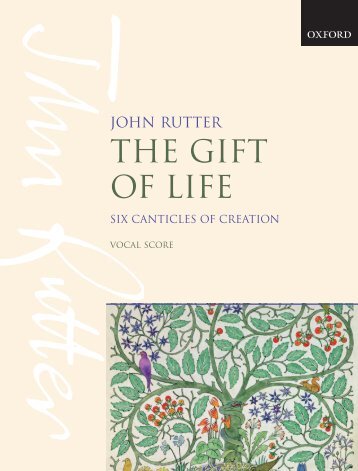
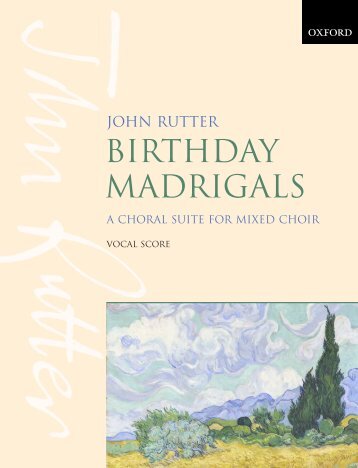
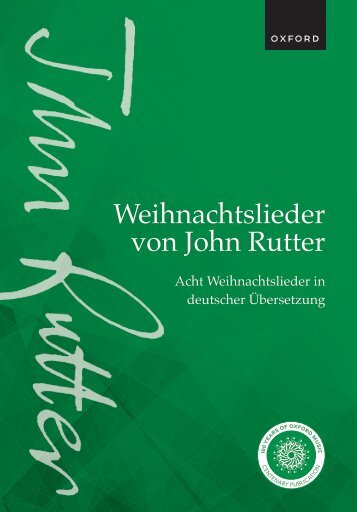
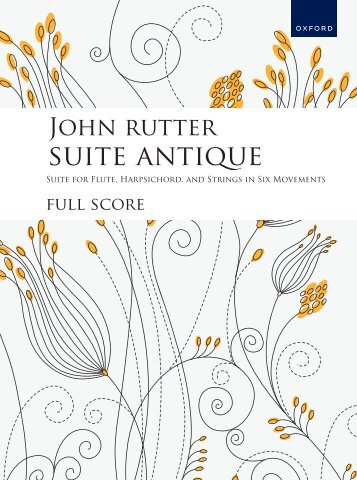
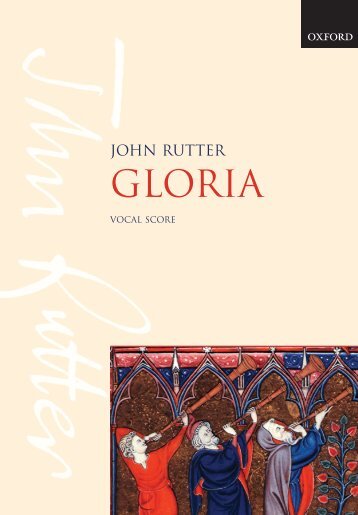
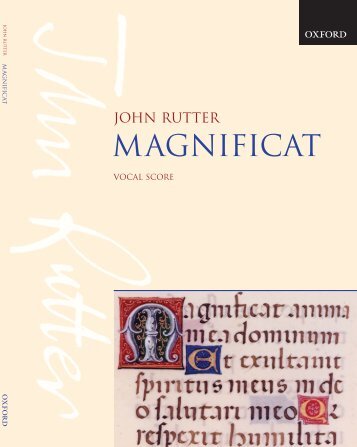
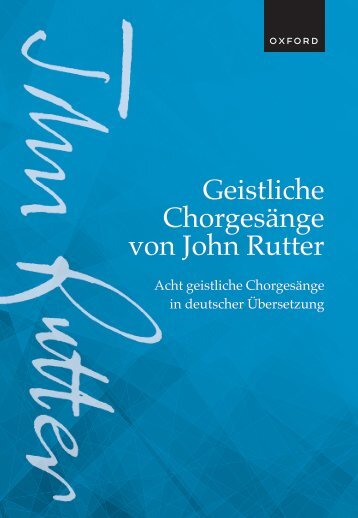
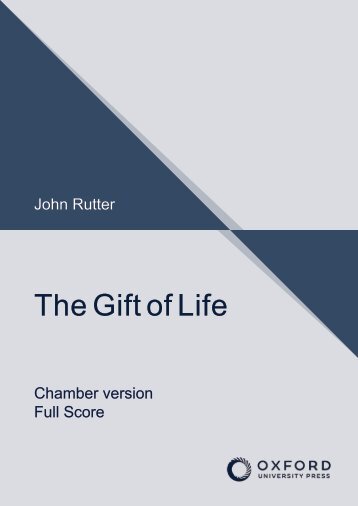


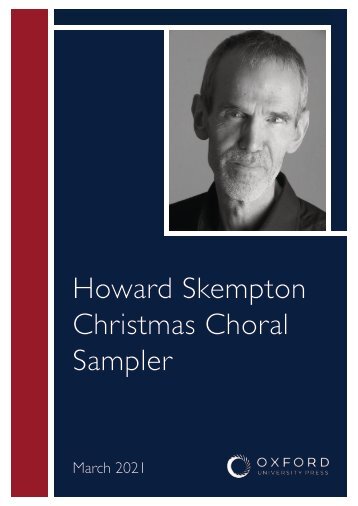
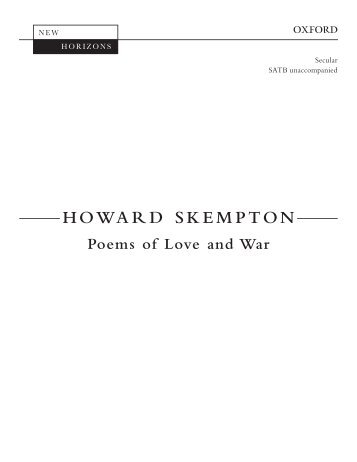


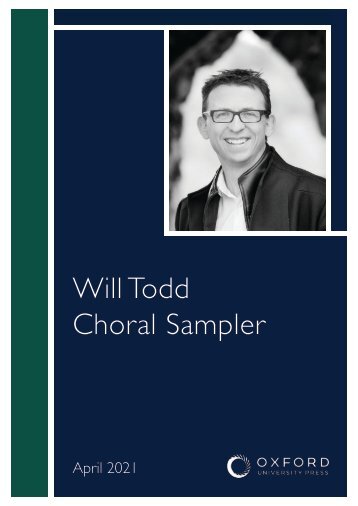
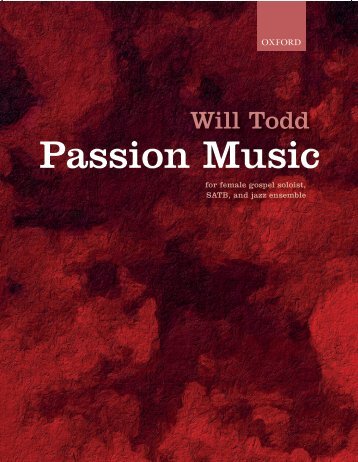
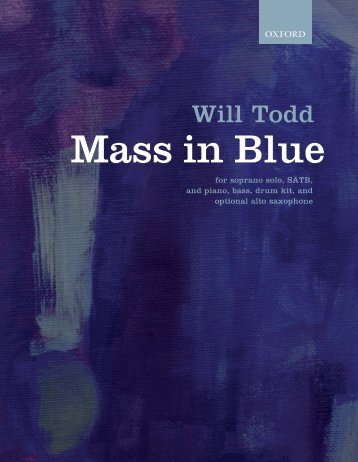
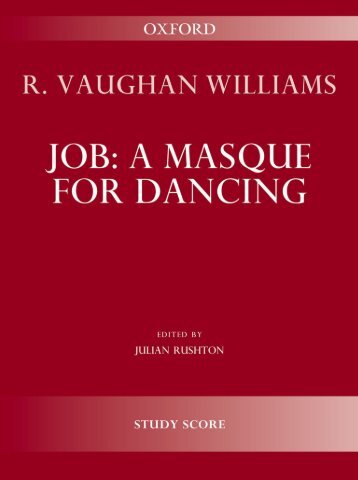
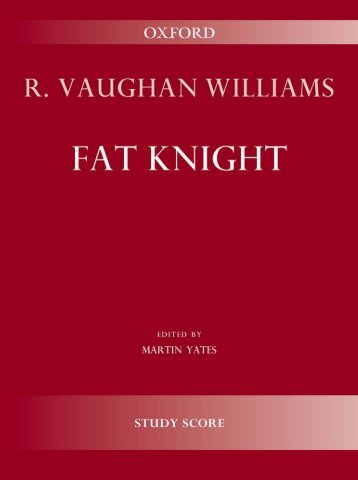
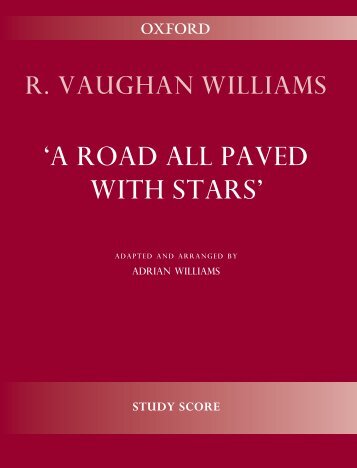
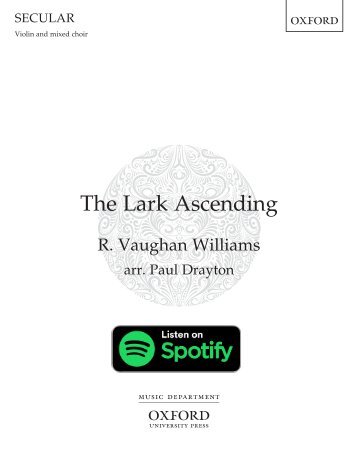
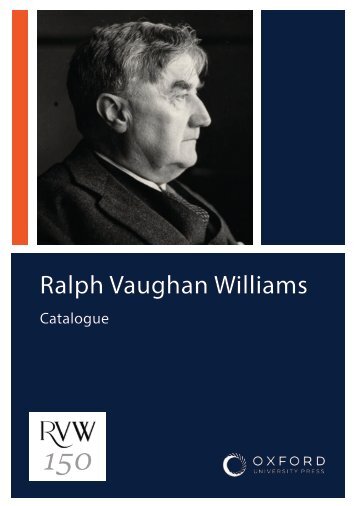
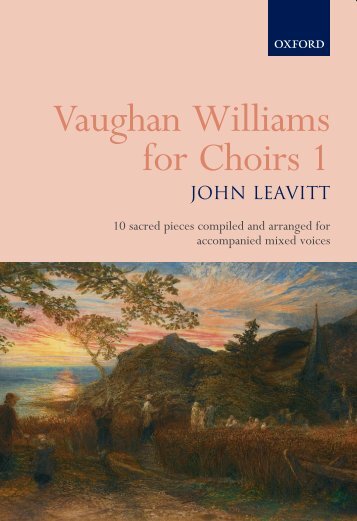
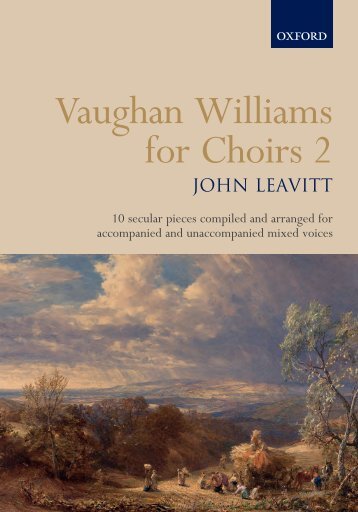

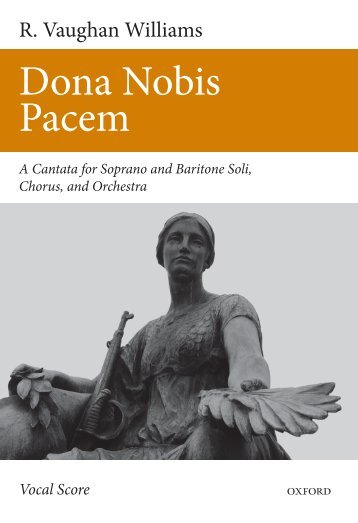
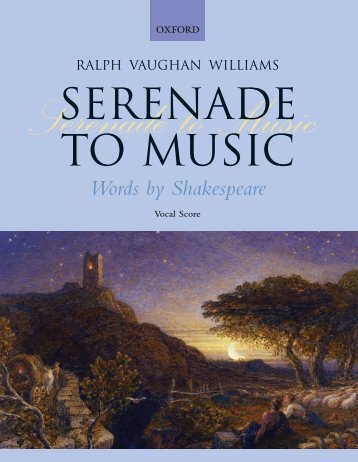
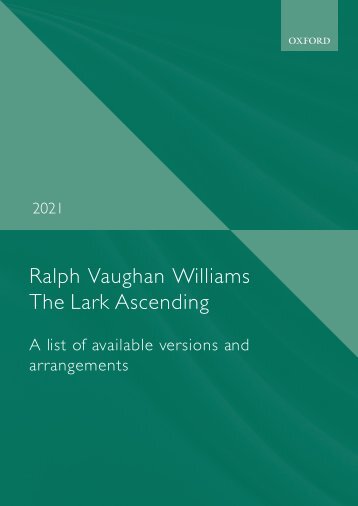

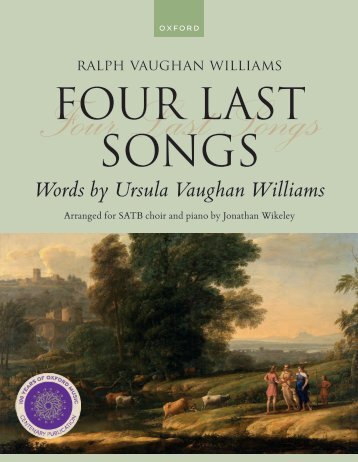

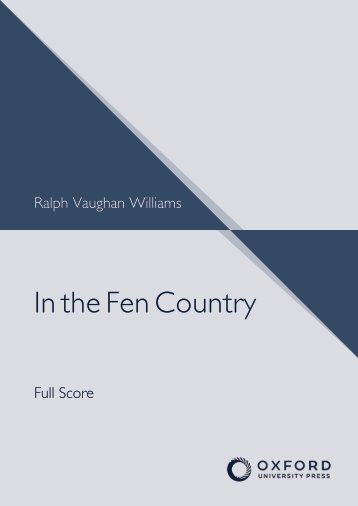
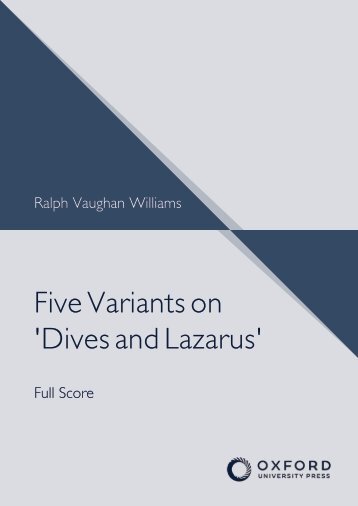
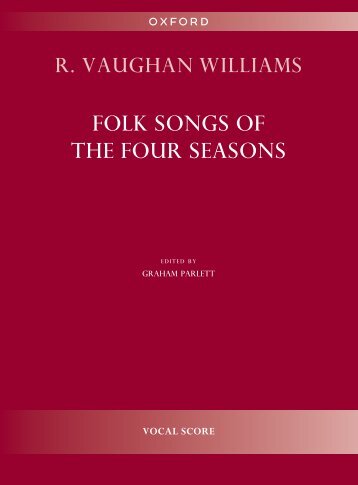



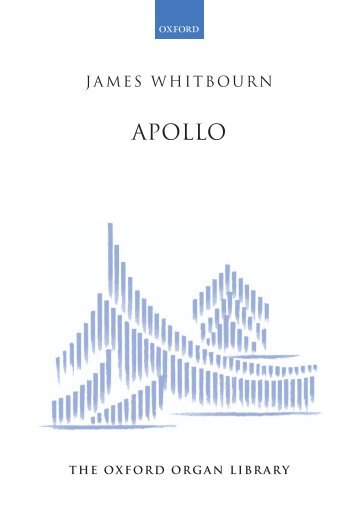
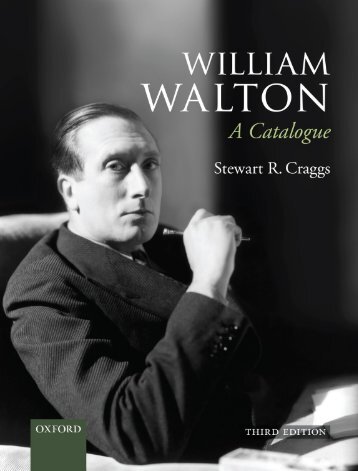



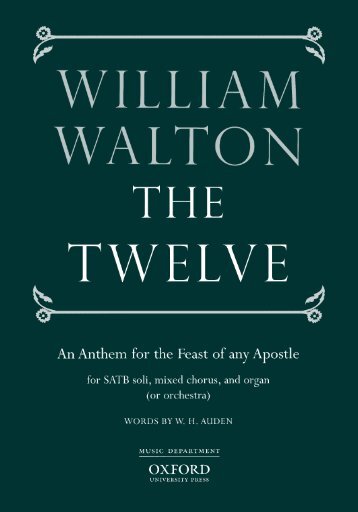
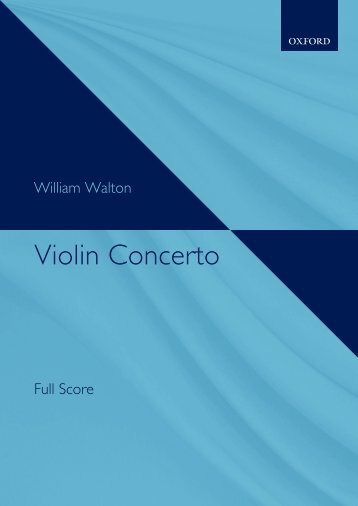








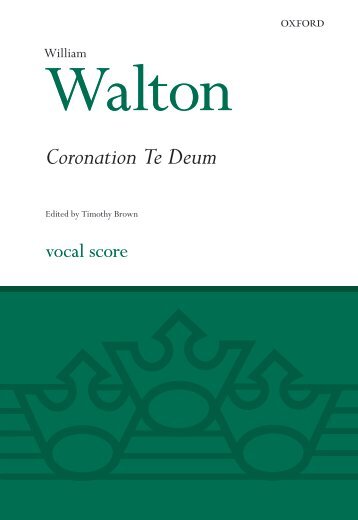

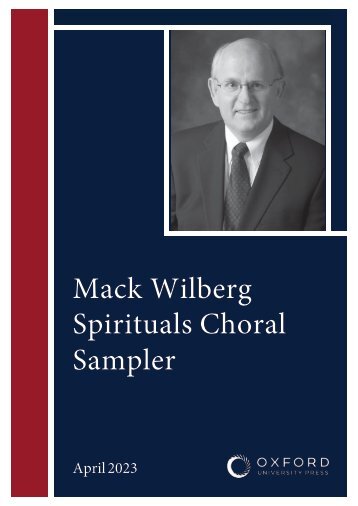
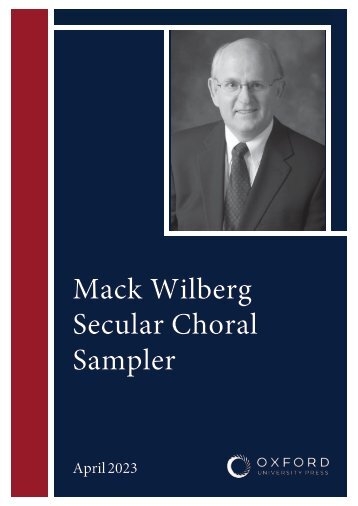




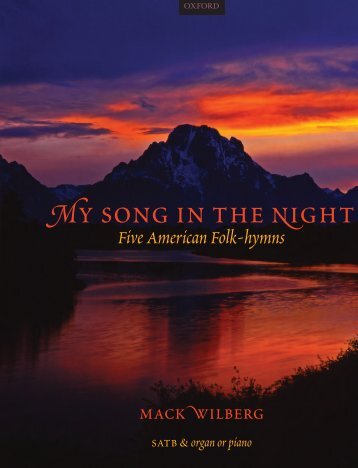
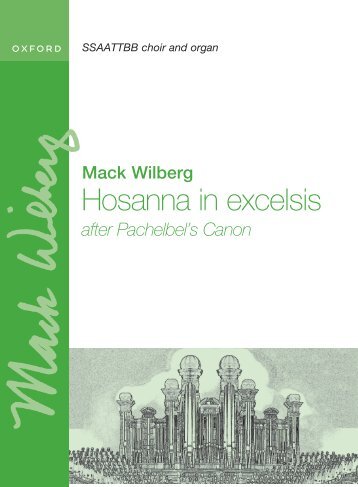




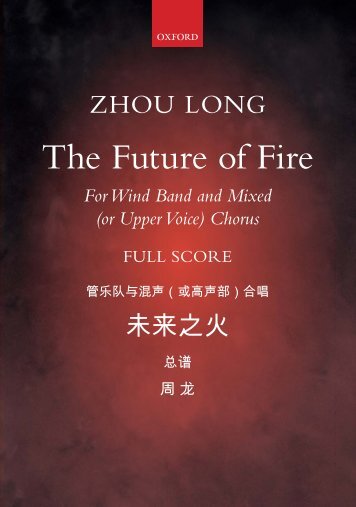





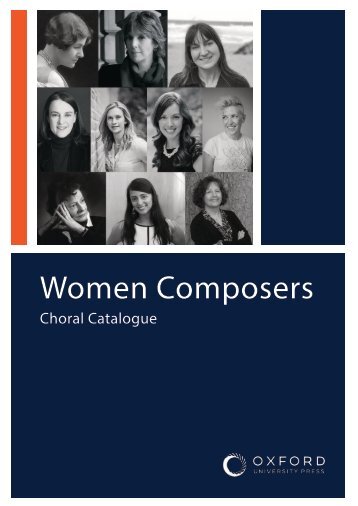
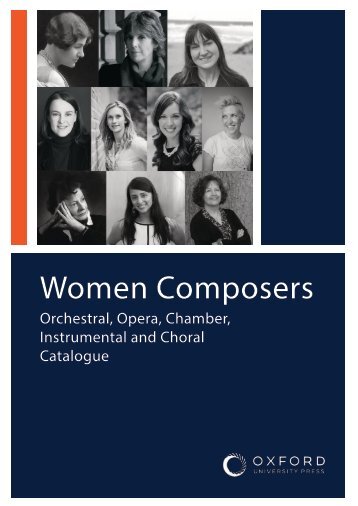


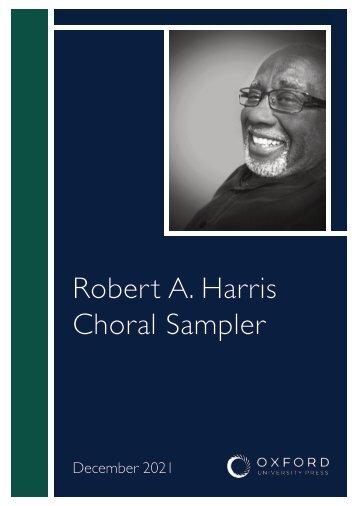
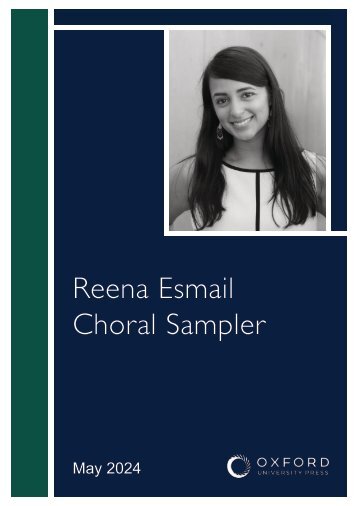
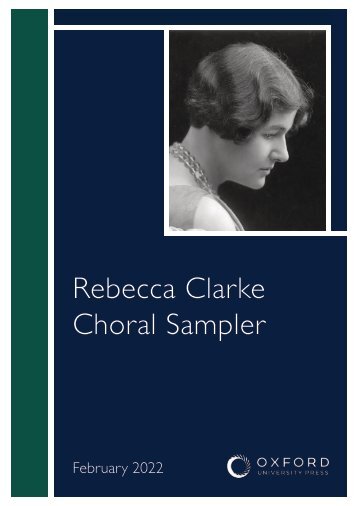
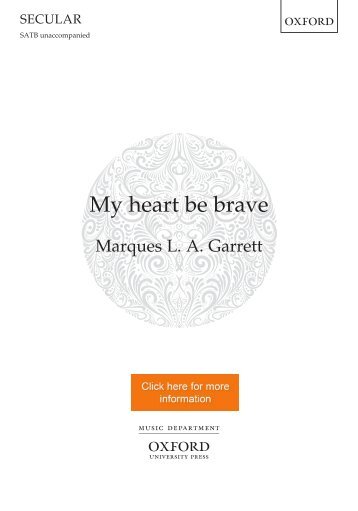
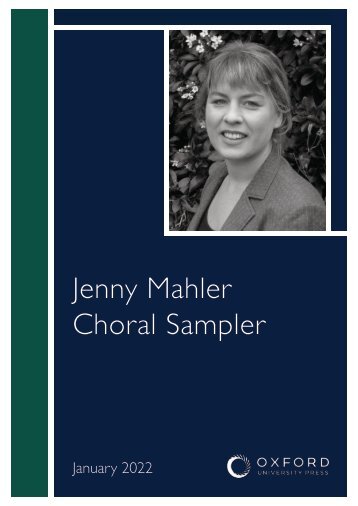
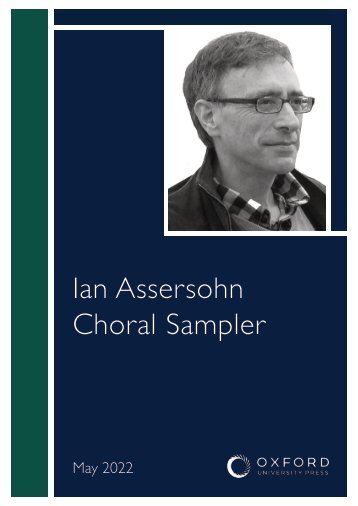
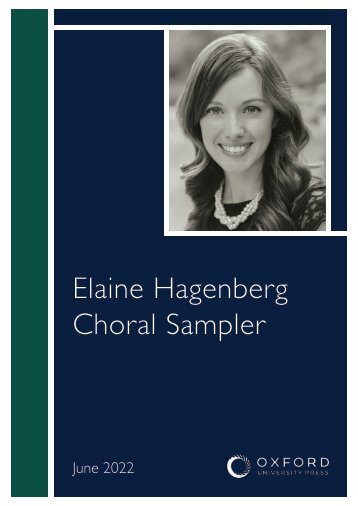
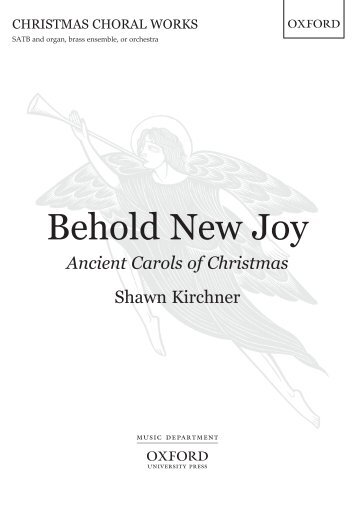
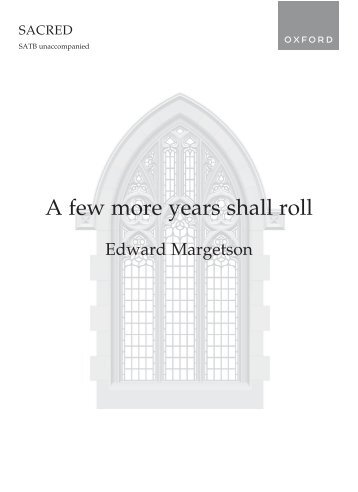
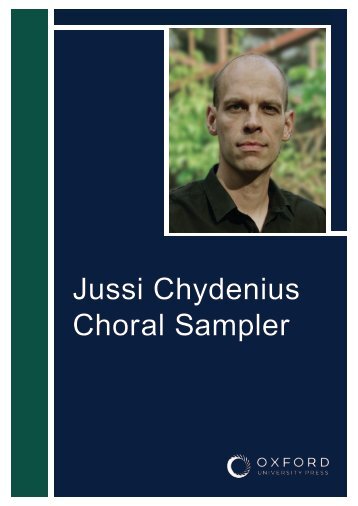


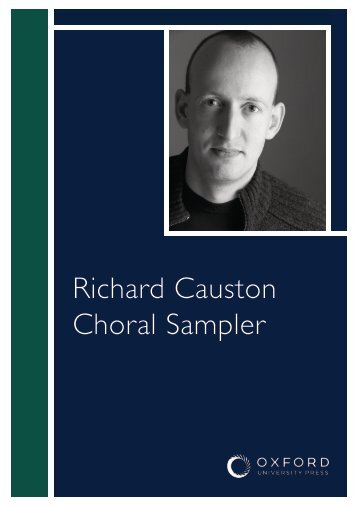
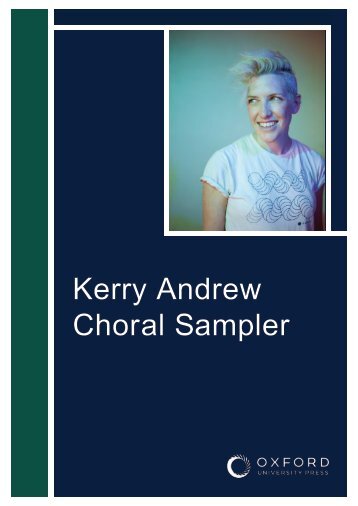
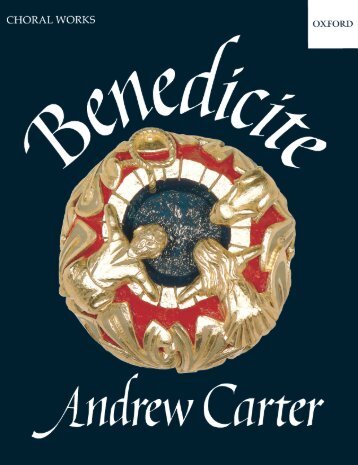
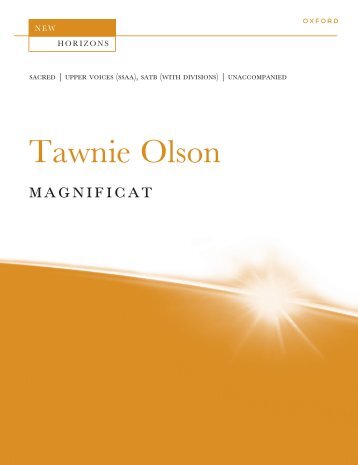


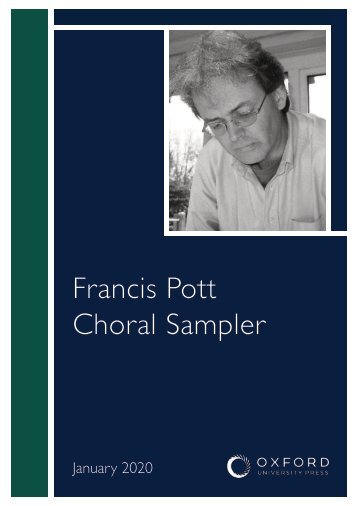

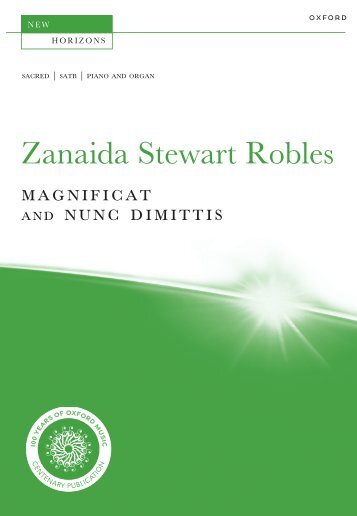
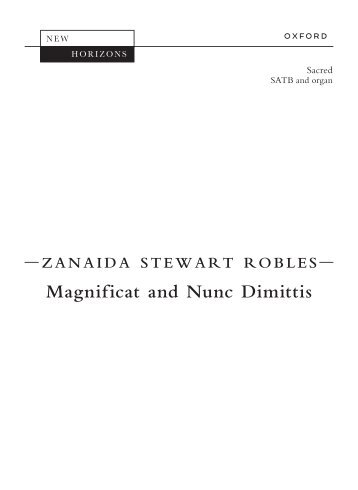
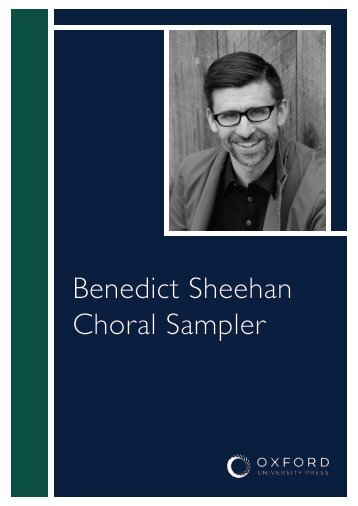
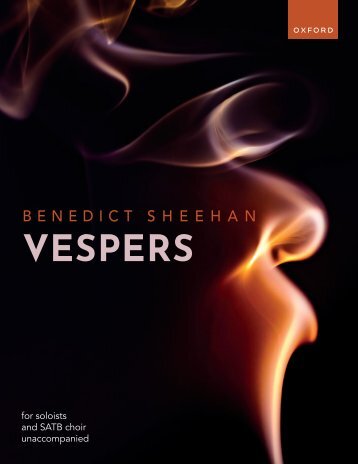
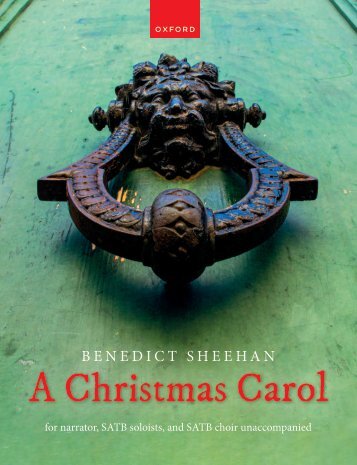

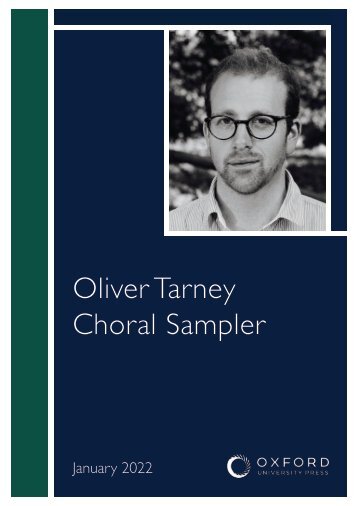
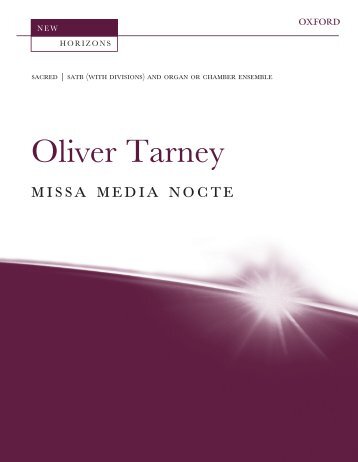
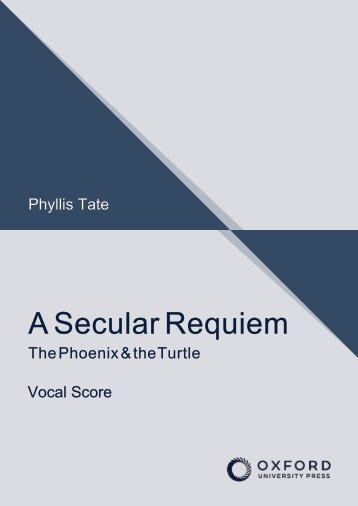
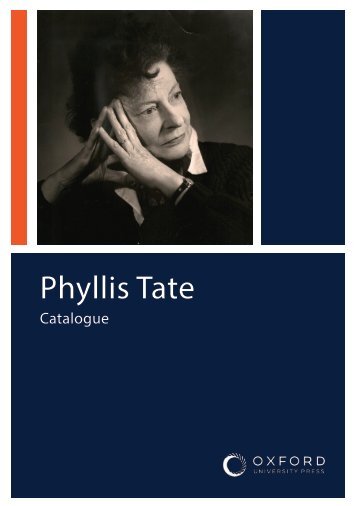
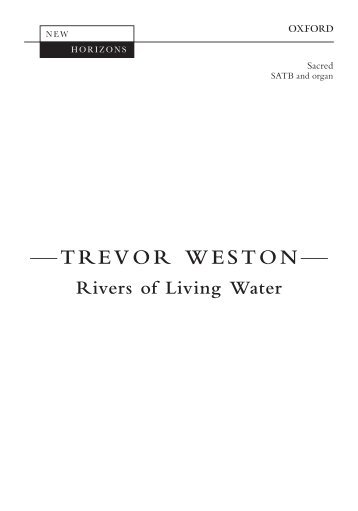

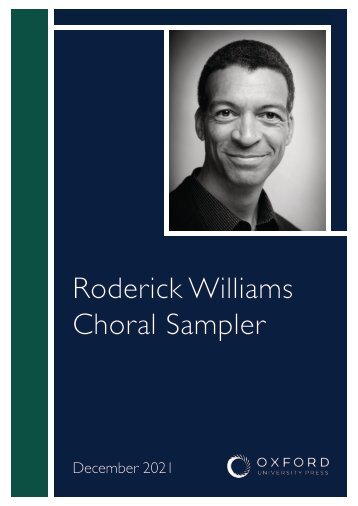
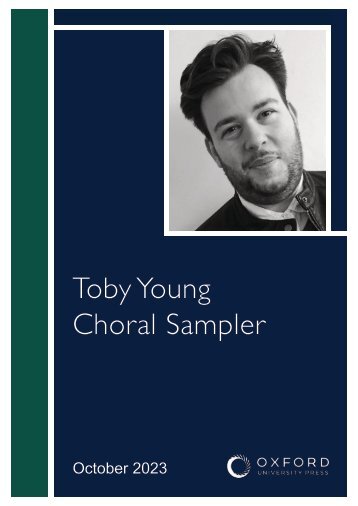

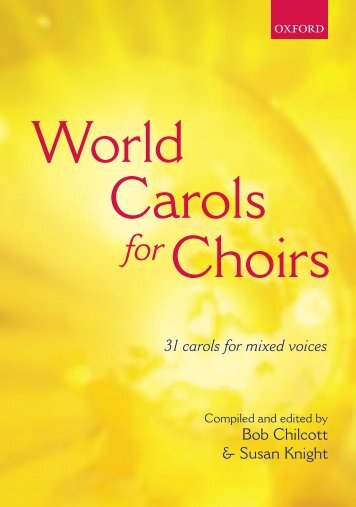
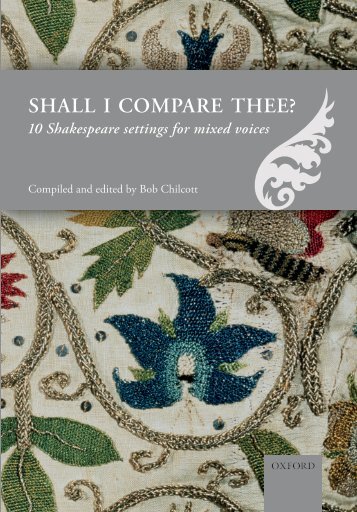
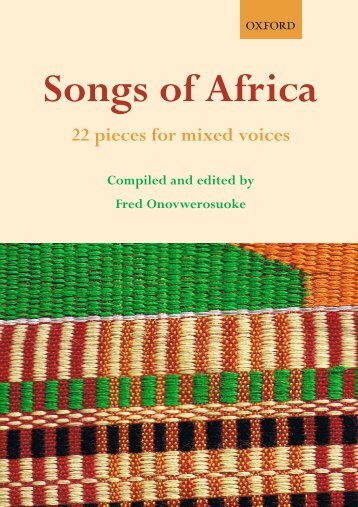


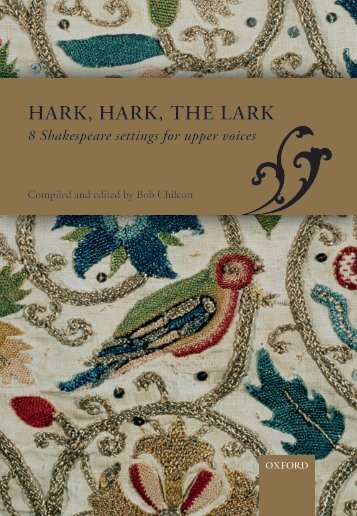
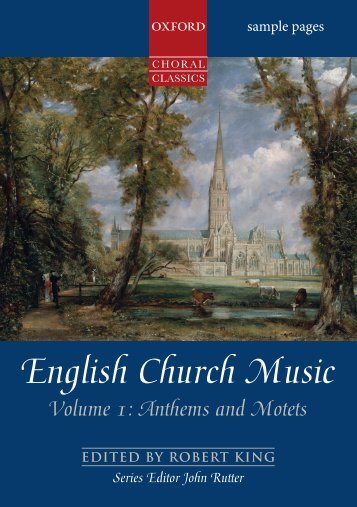
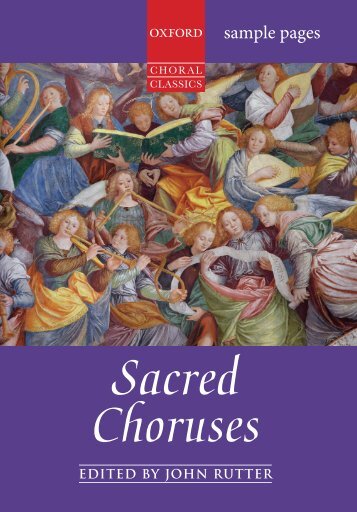

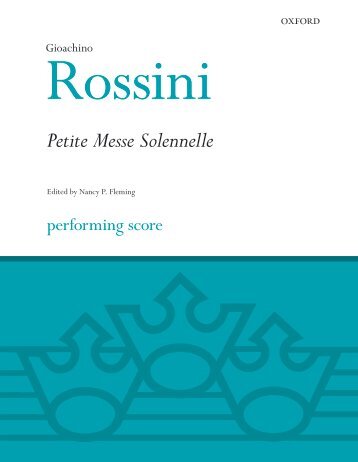
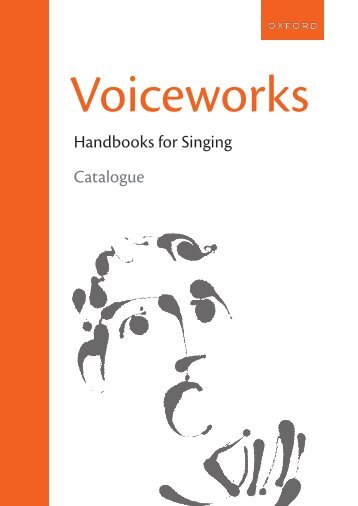
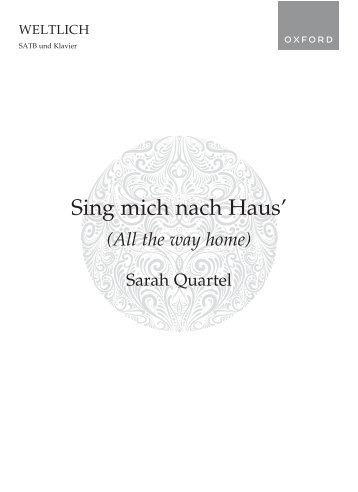


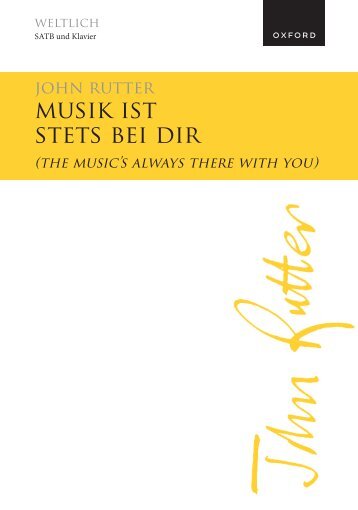
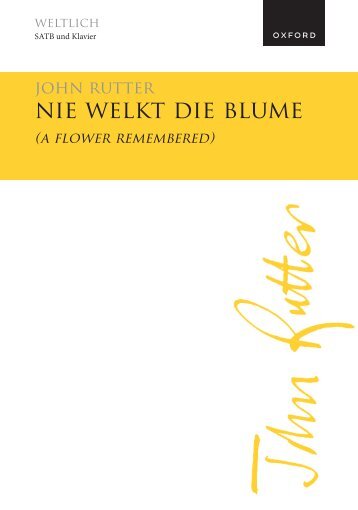


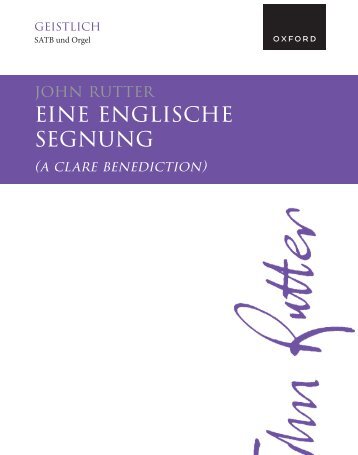

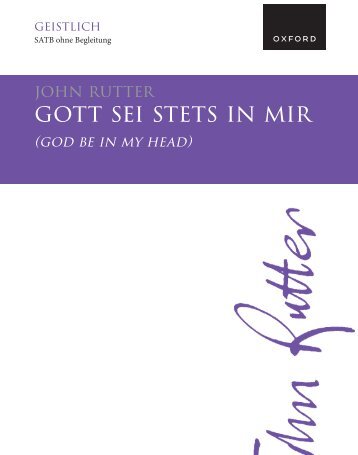
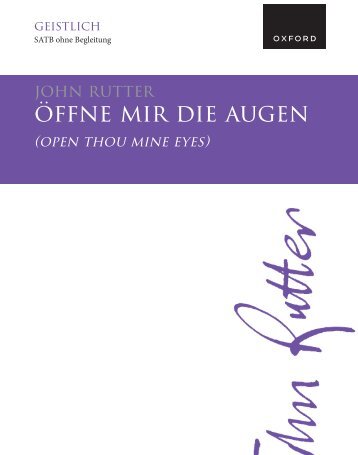

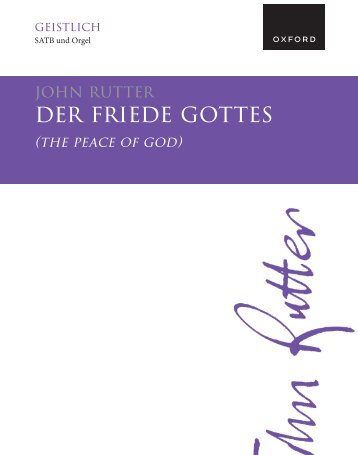
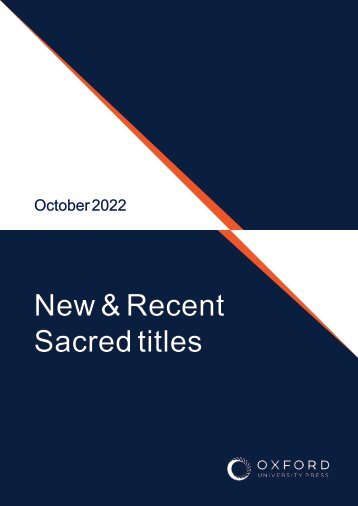

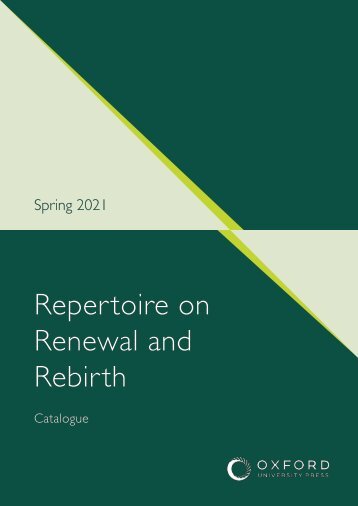
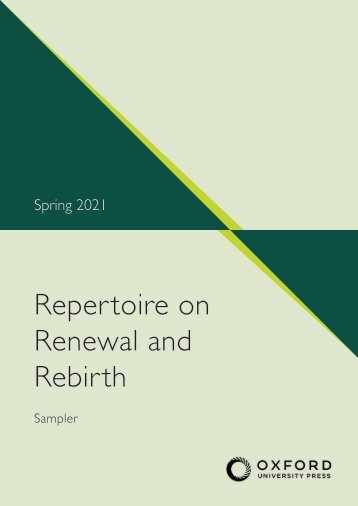
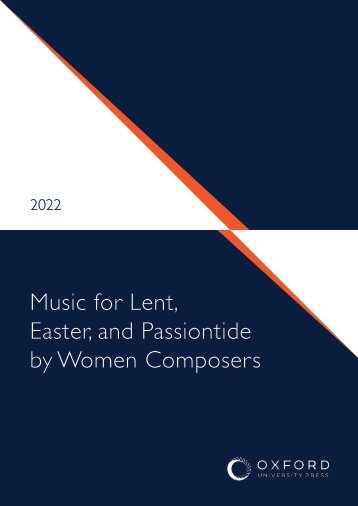
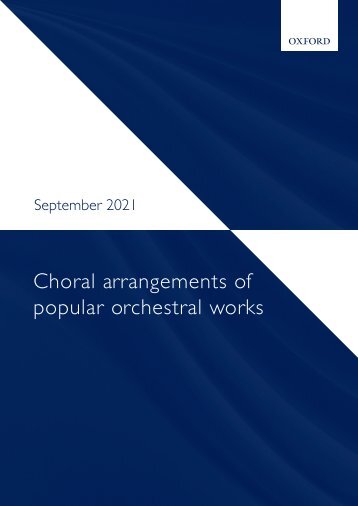
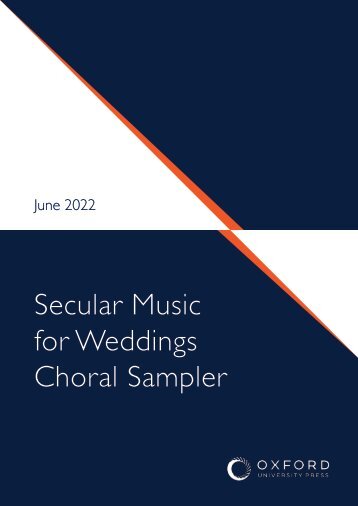

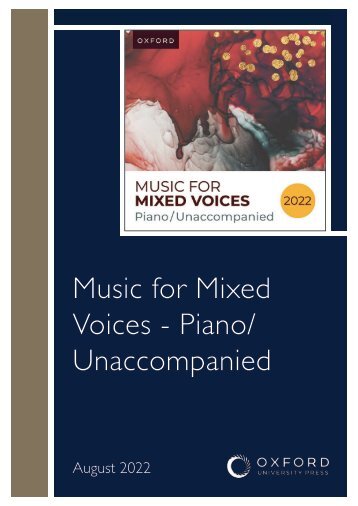
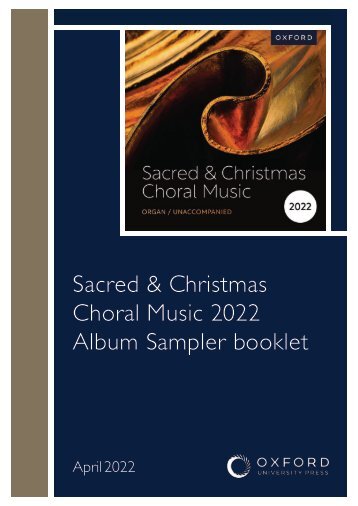
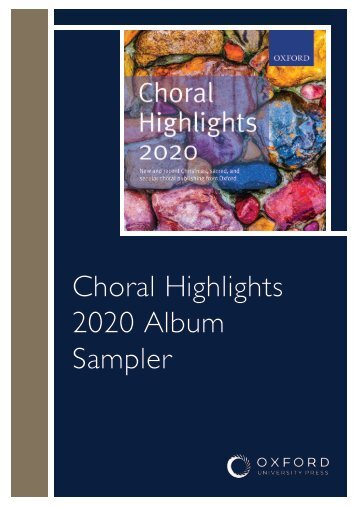
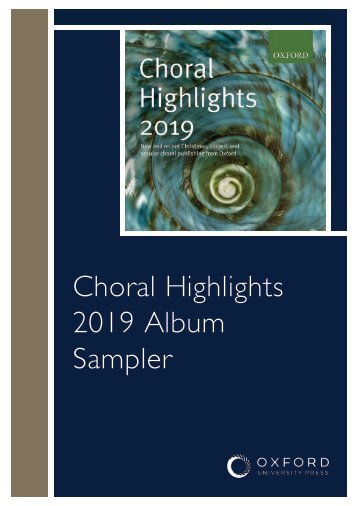
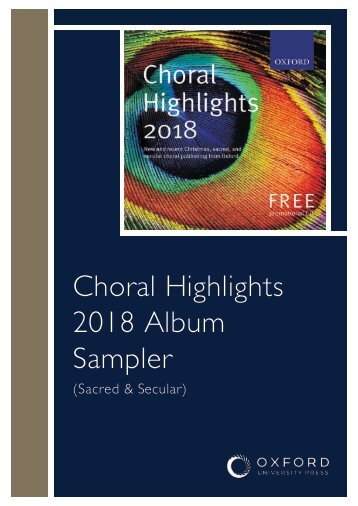

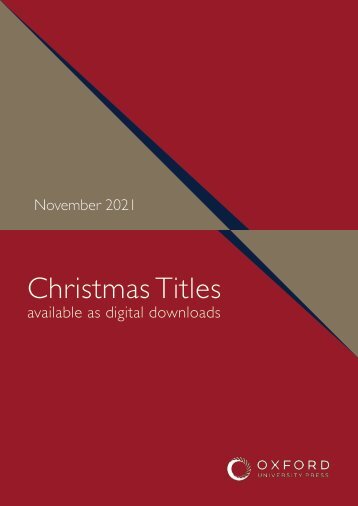
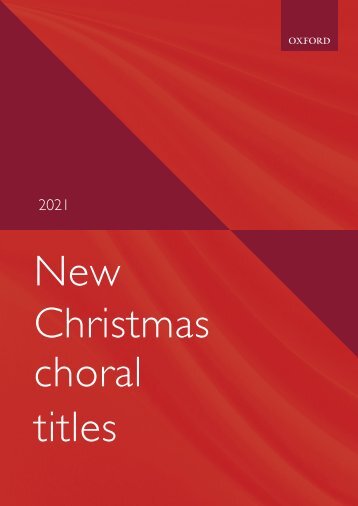
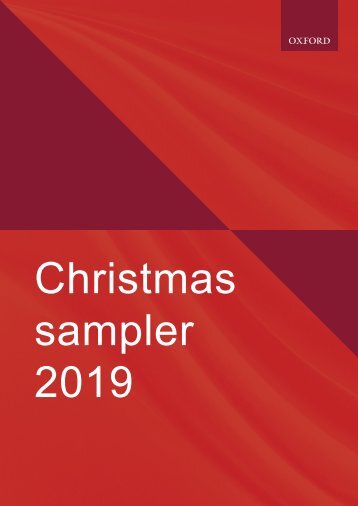
Facebook
Twitter
Email